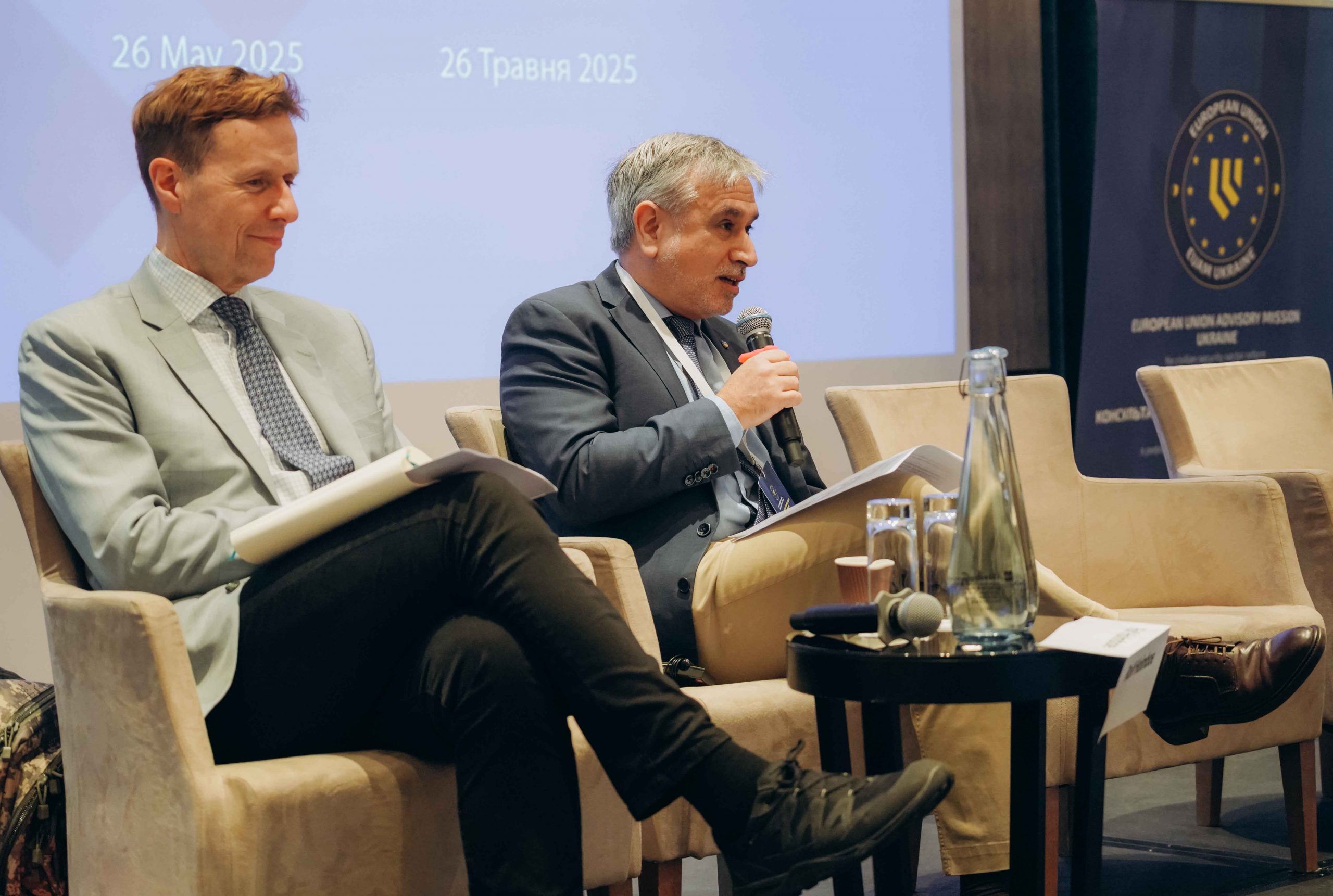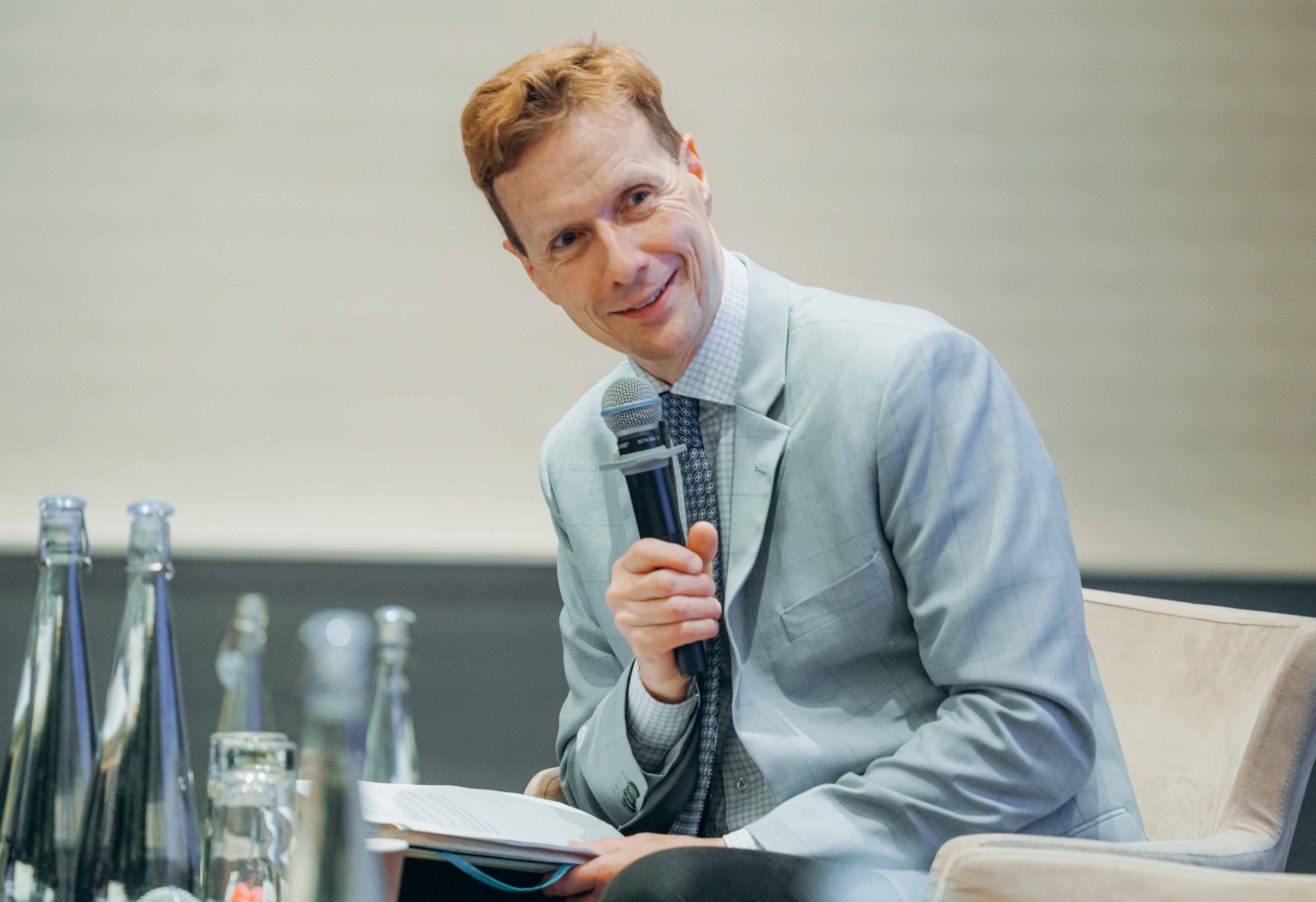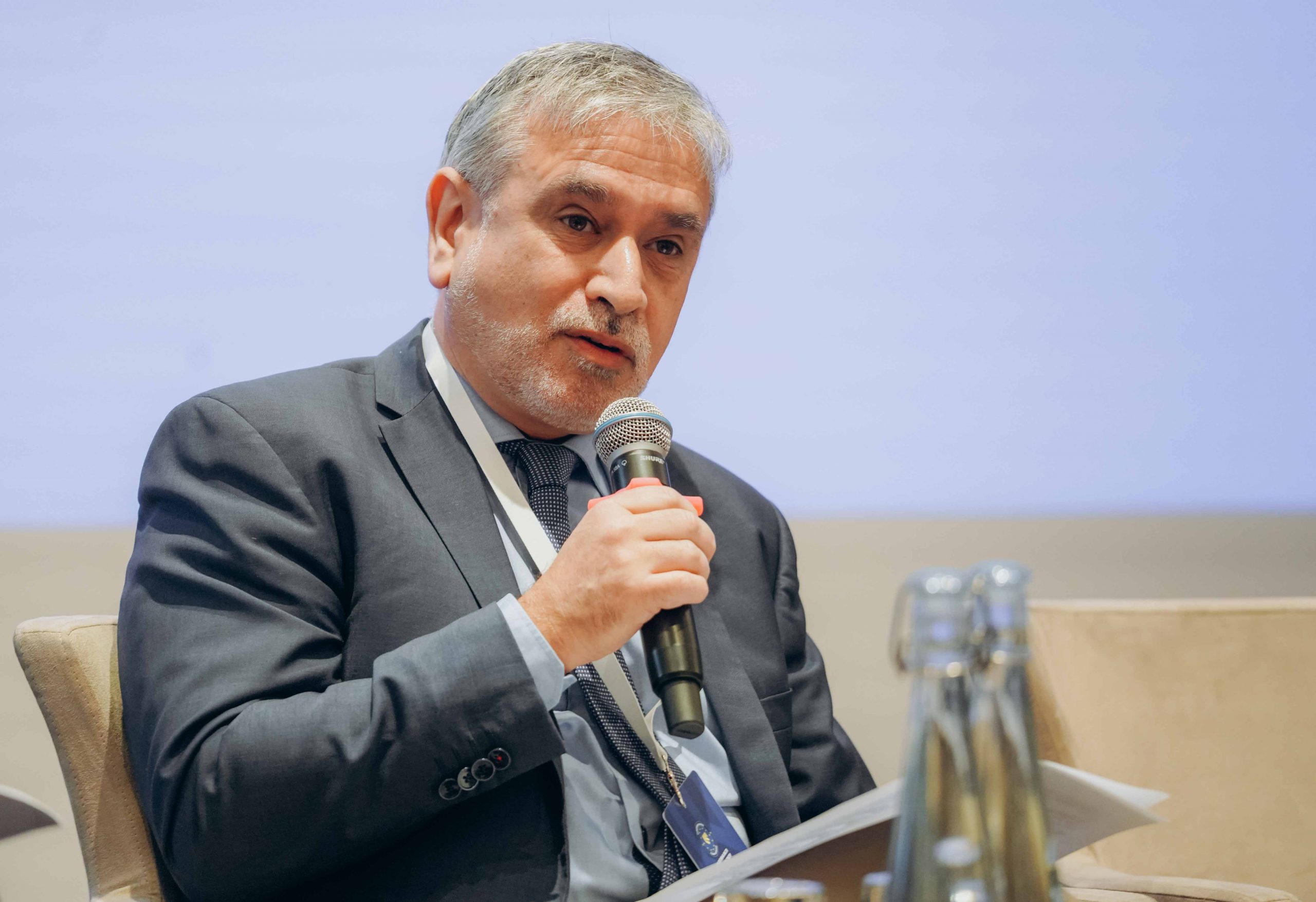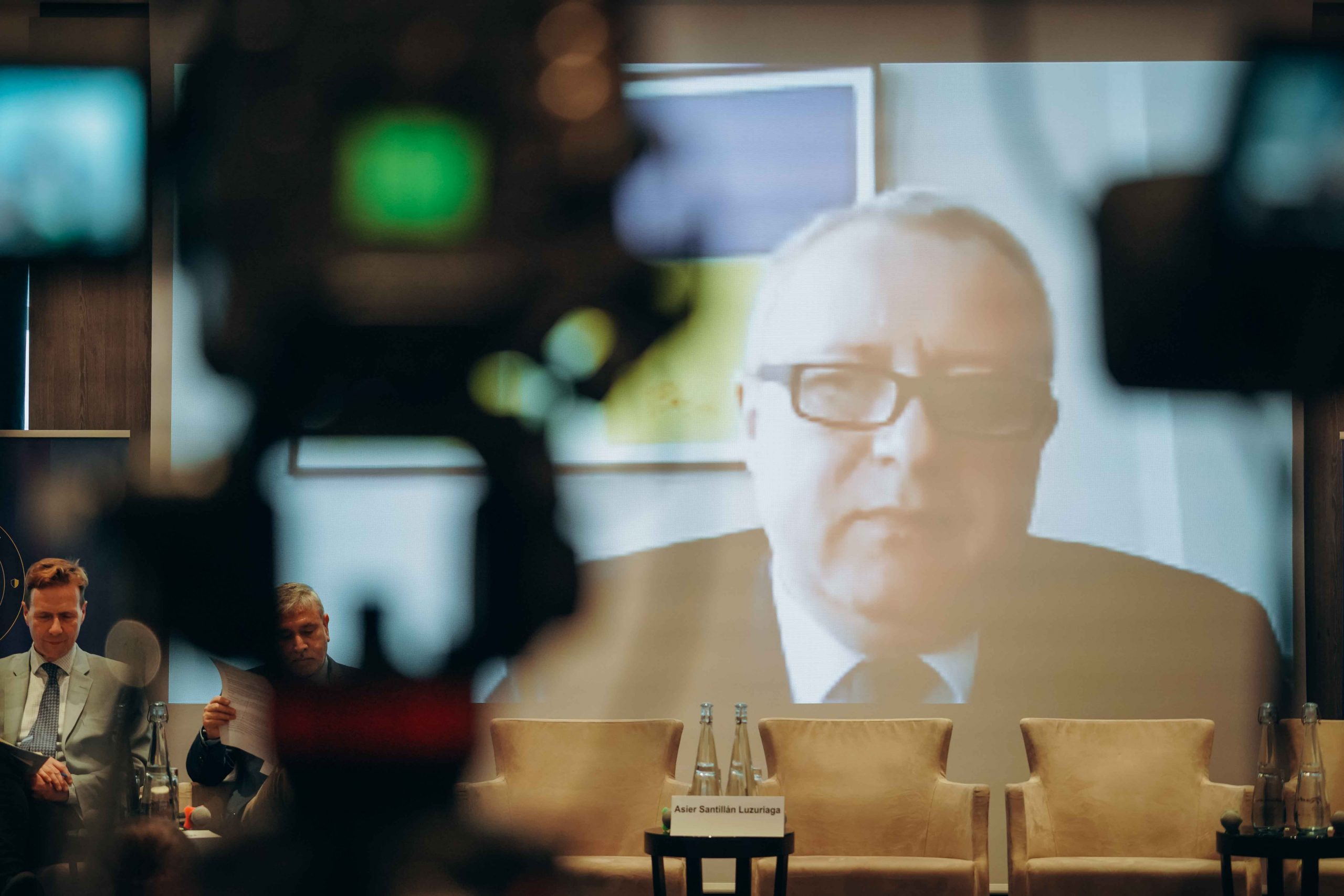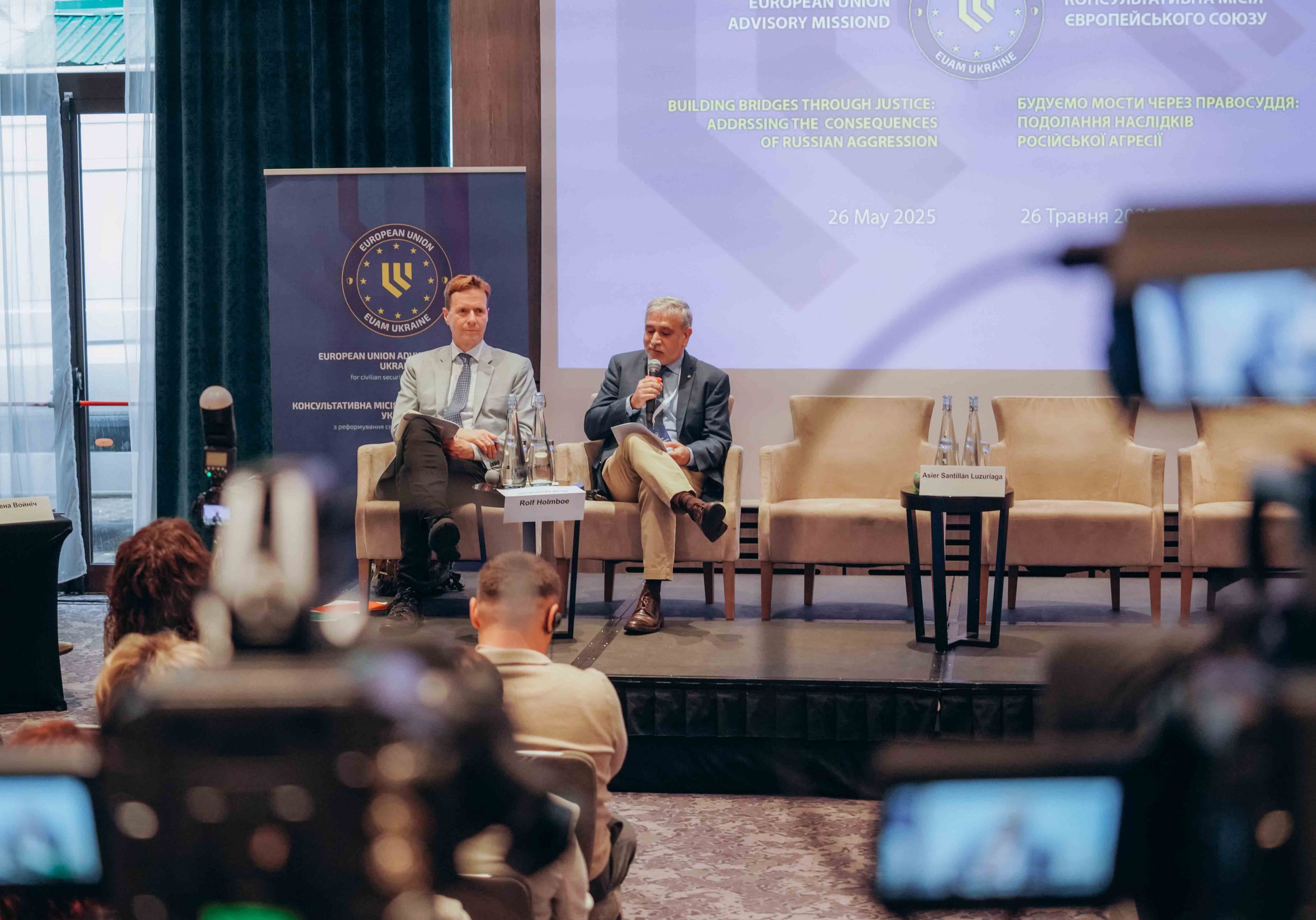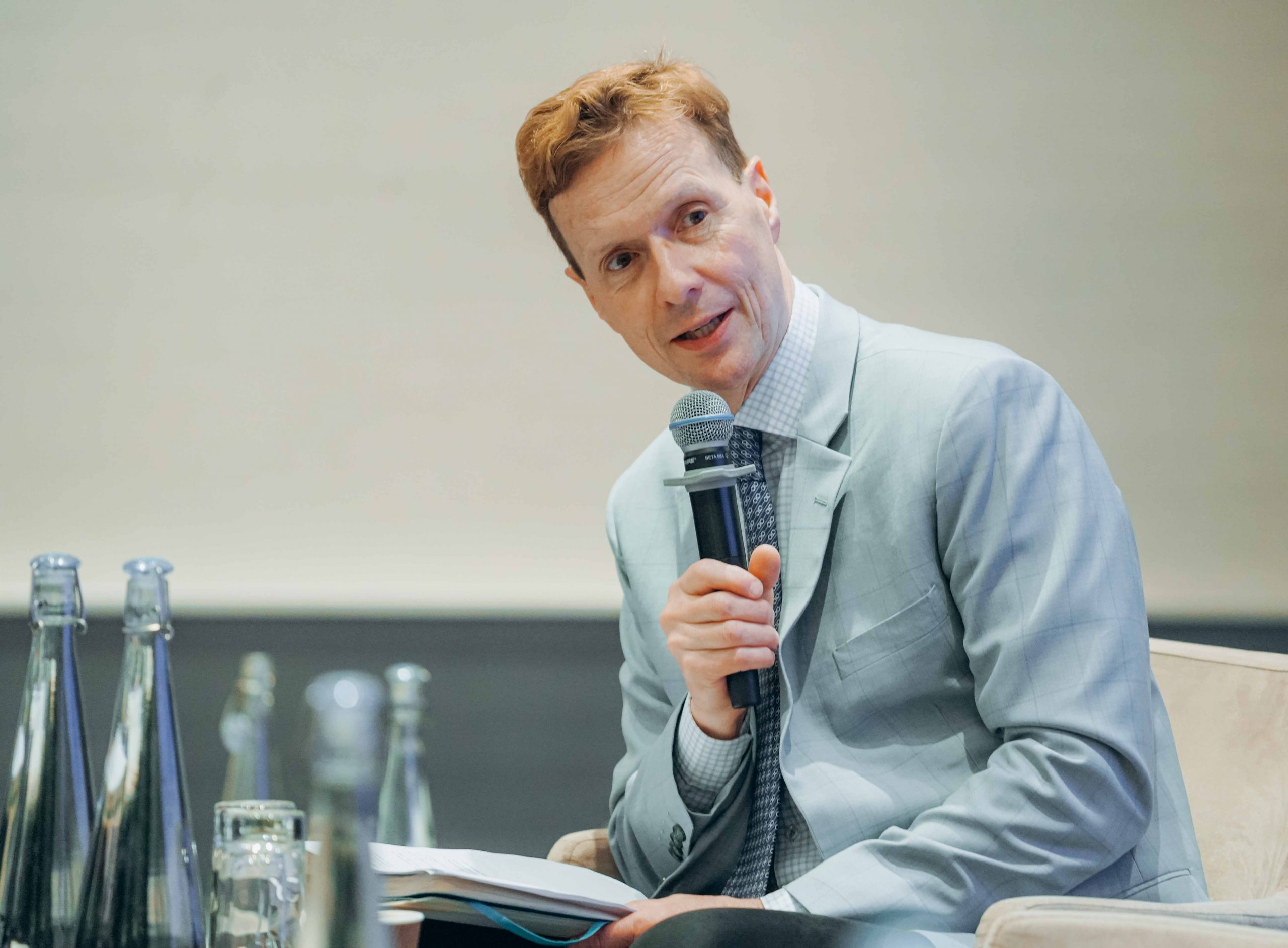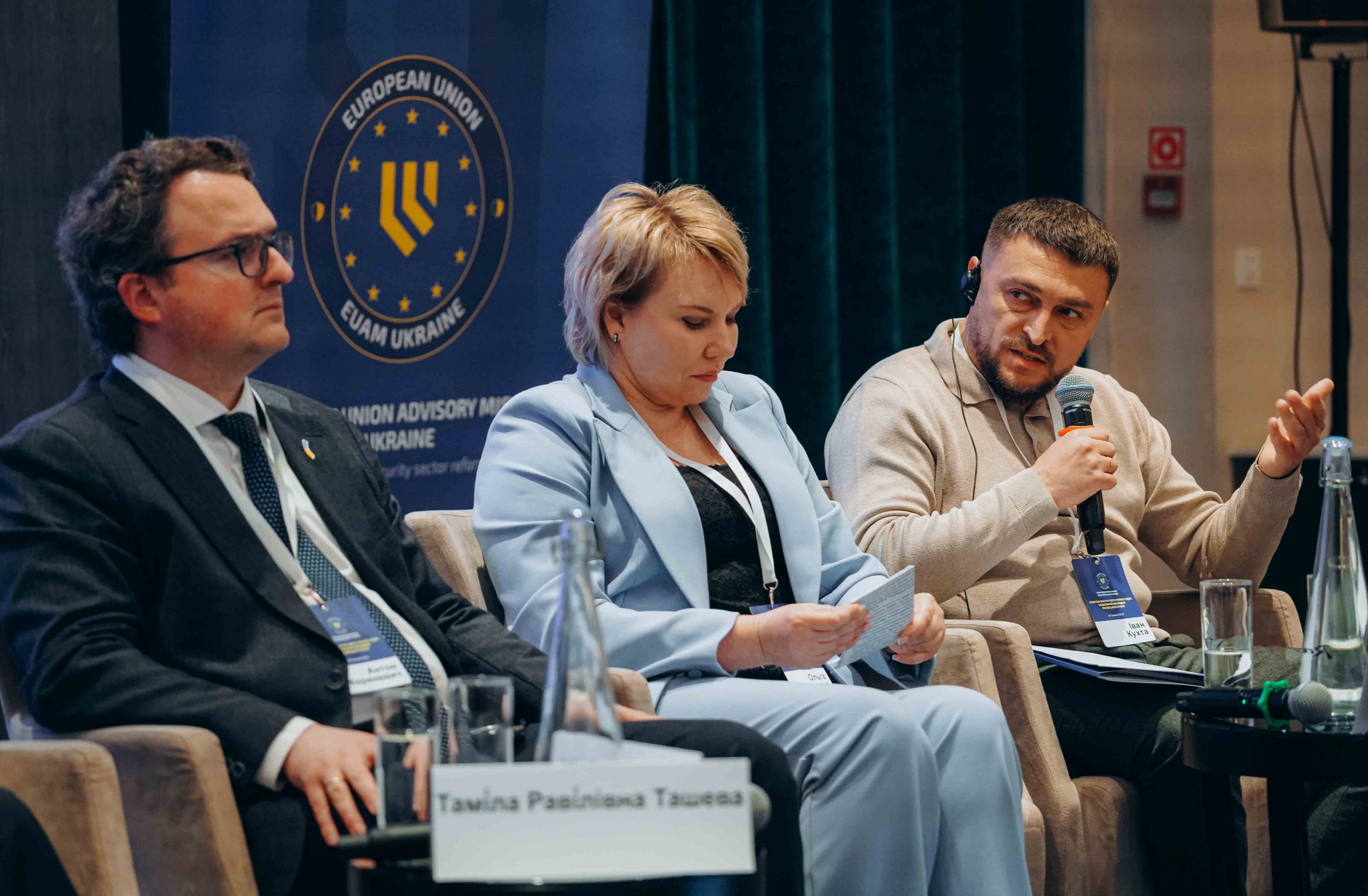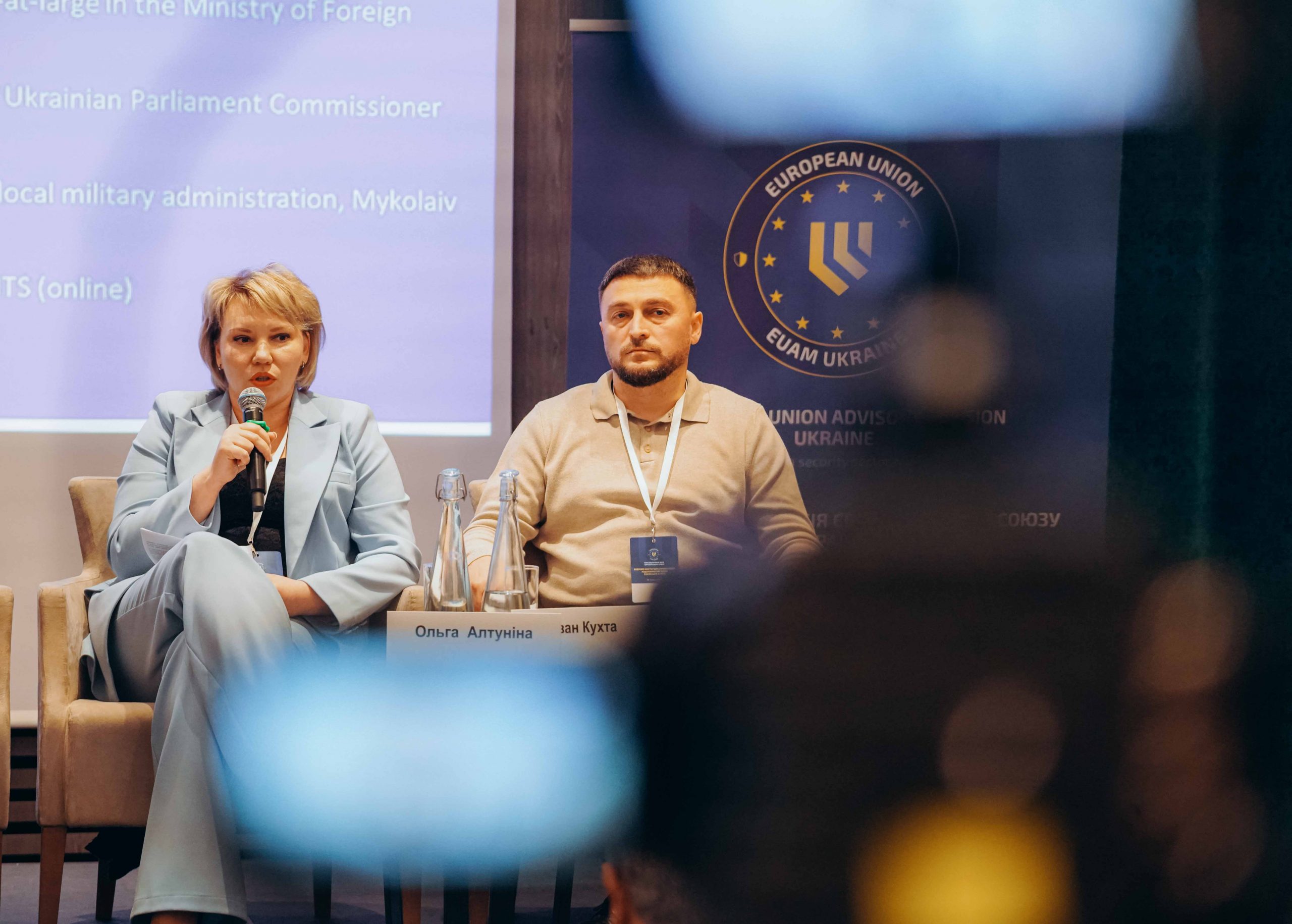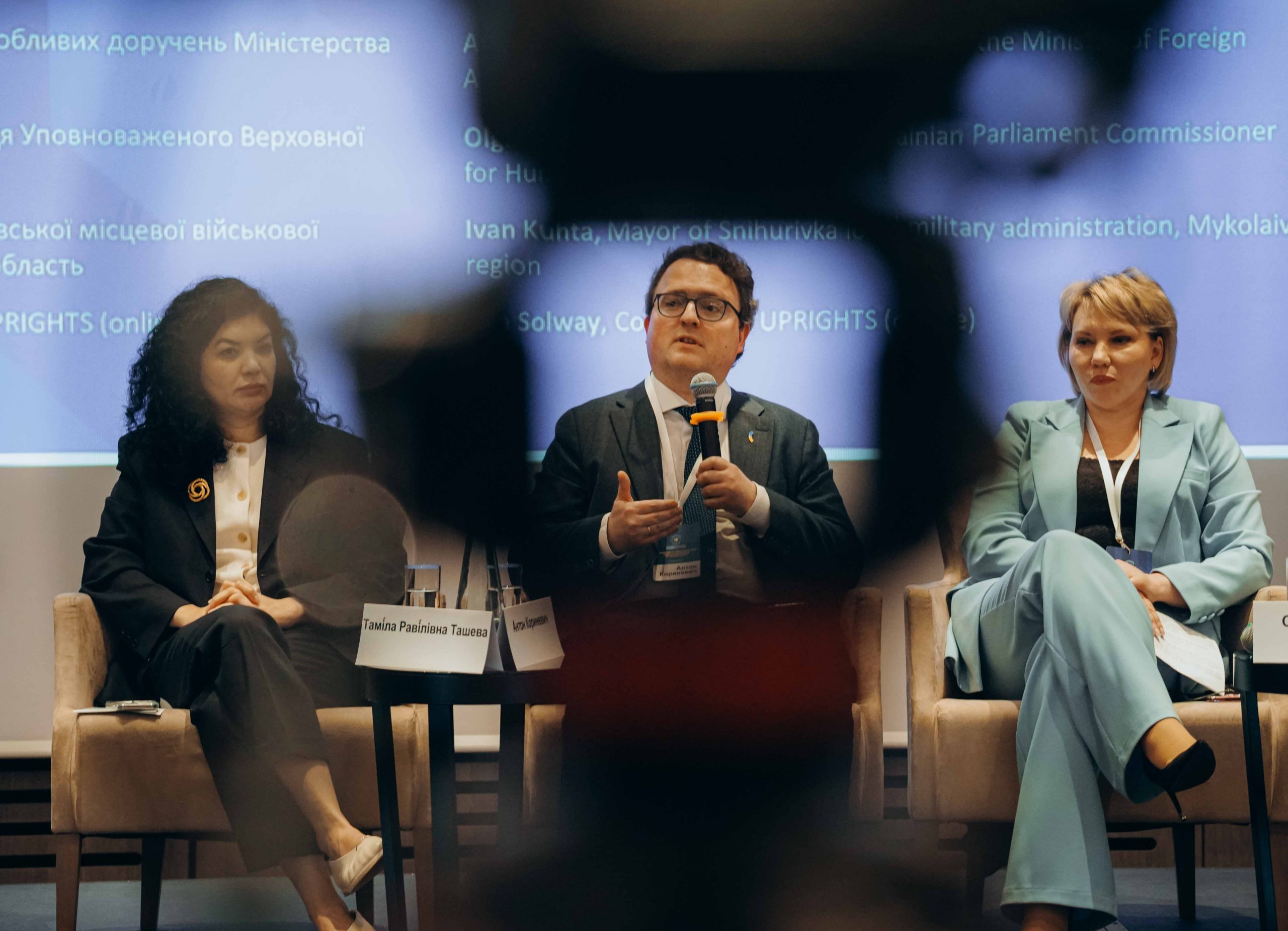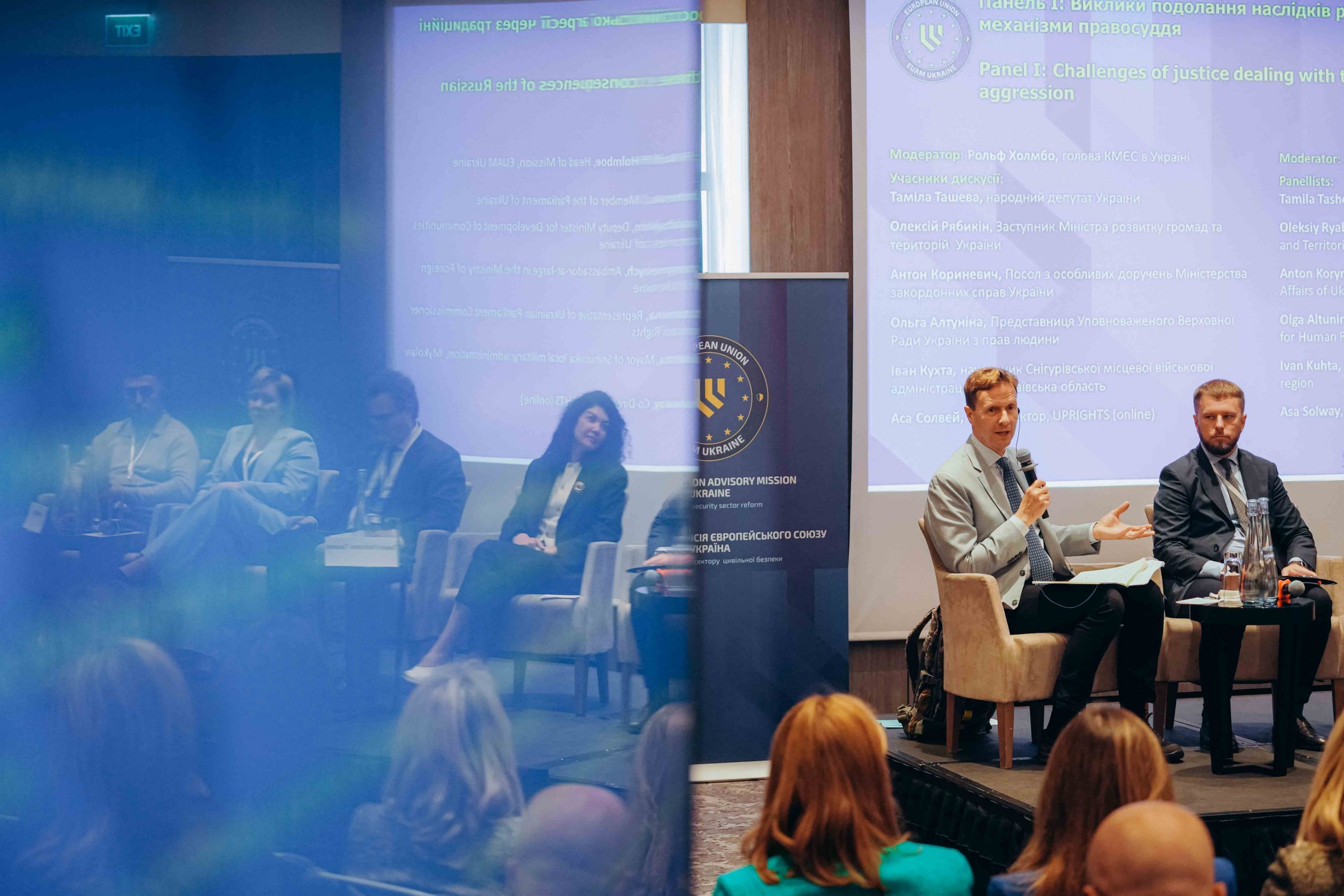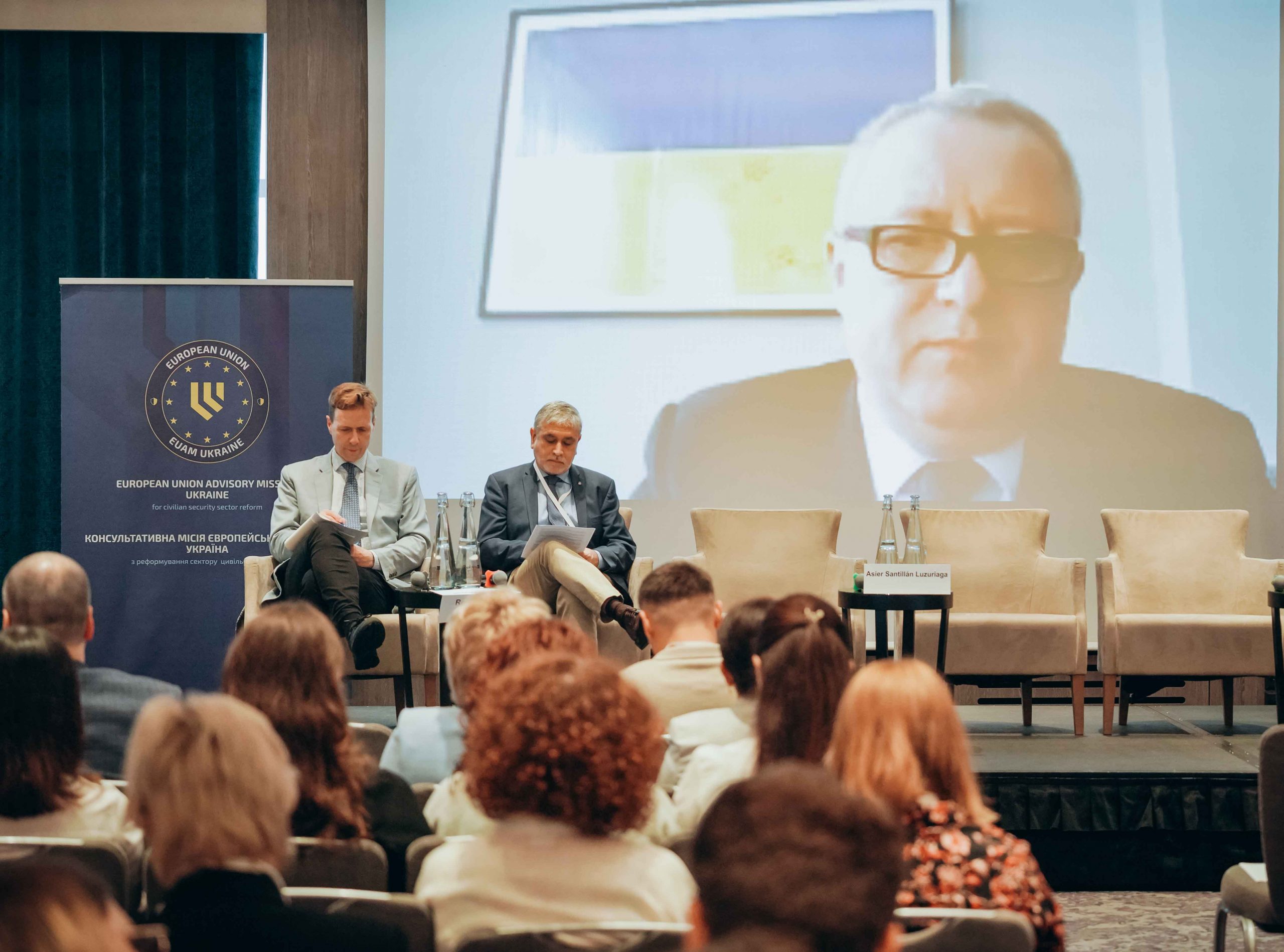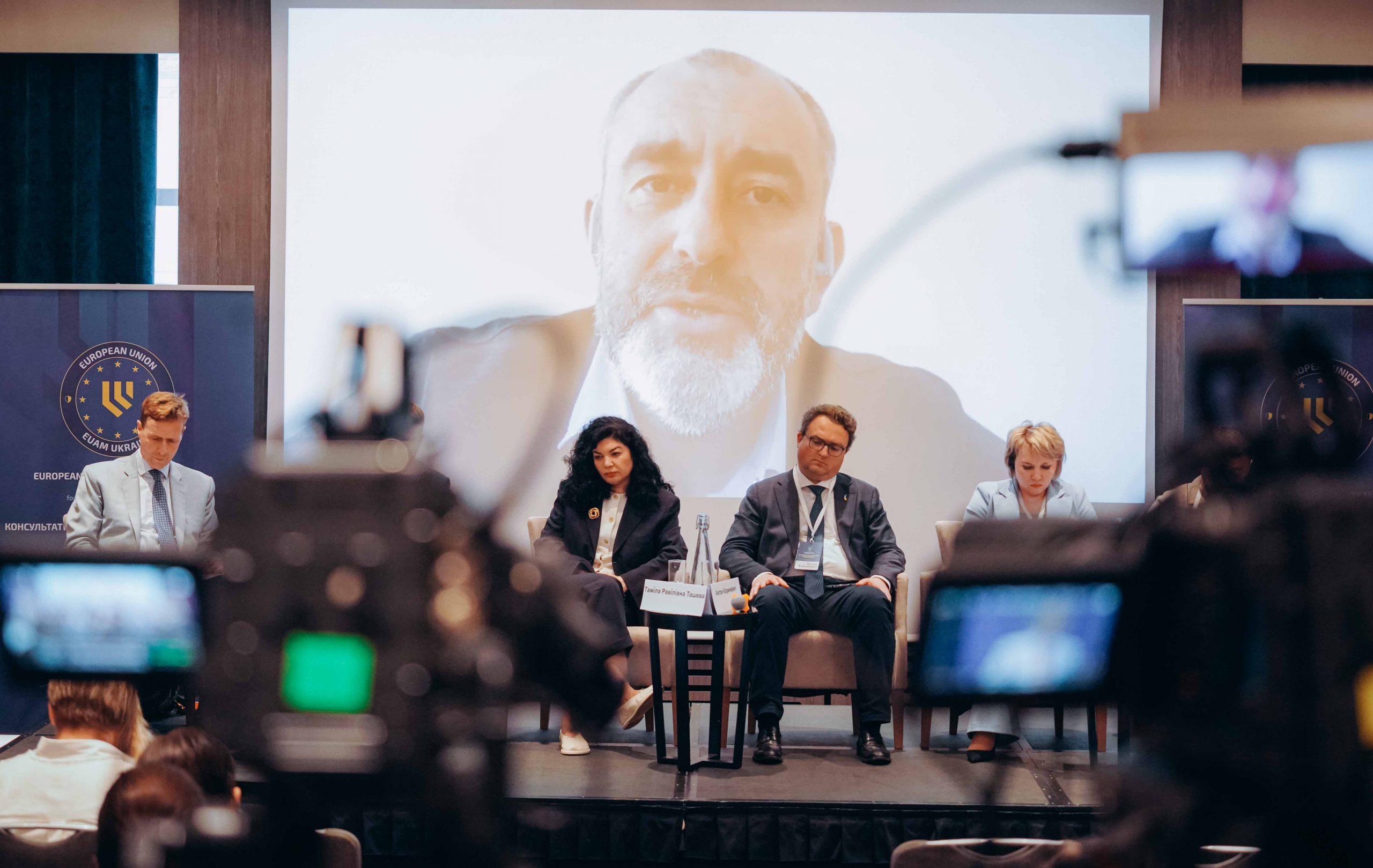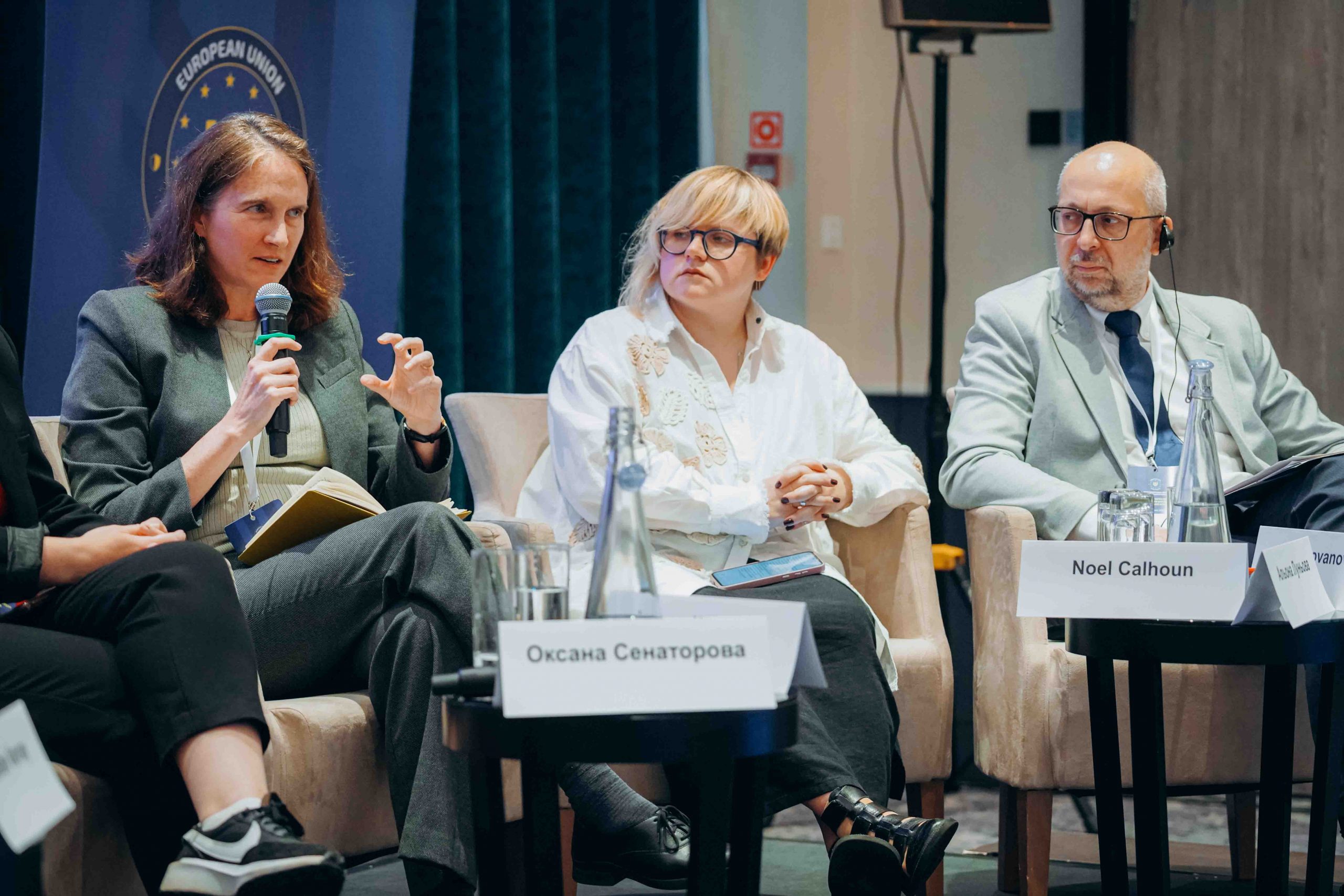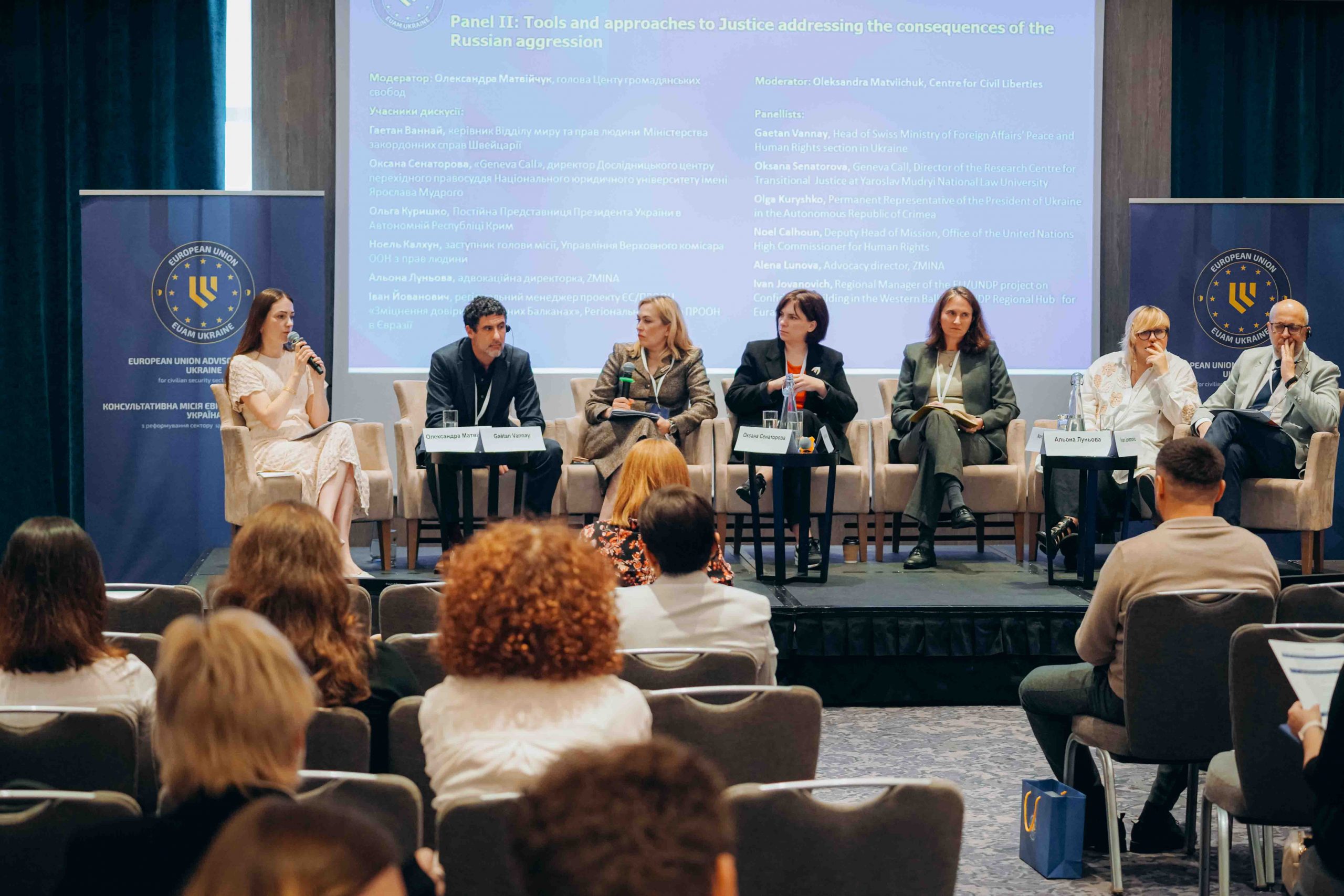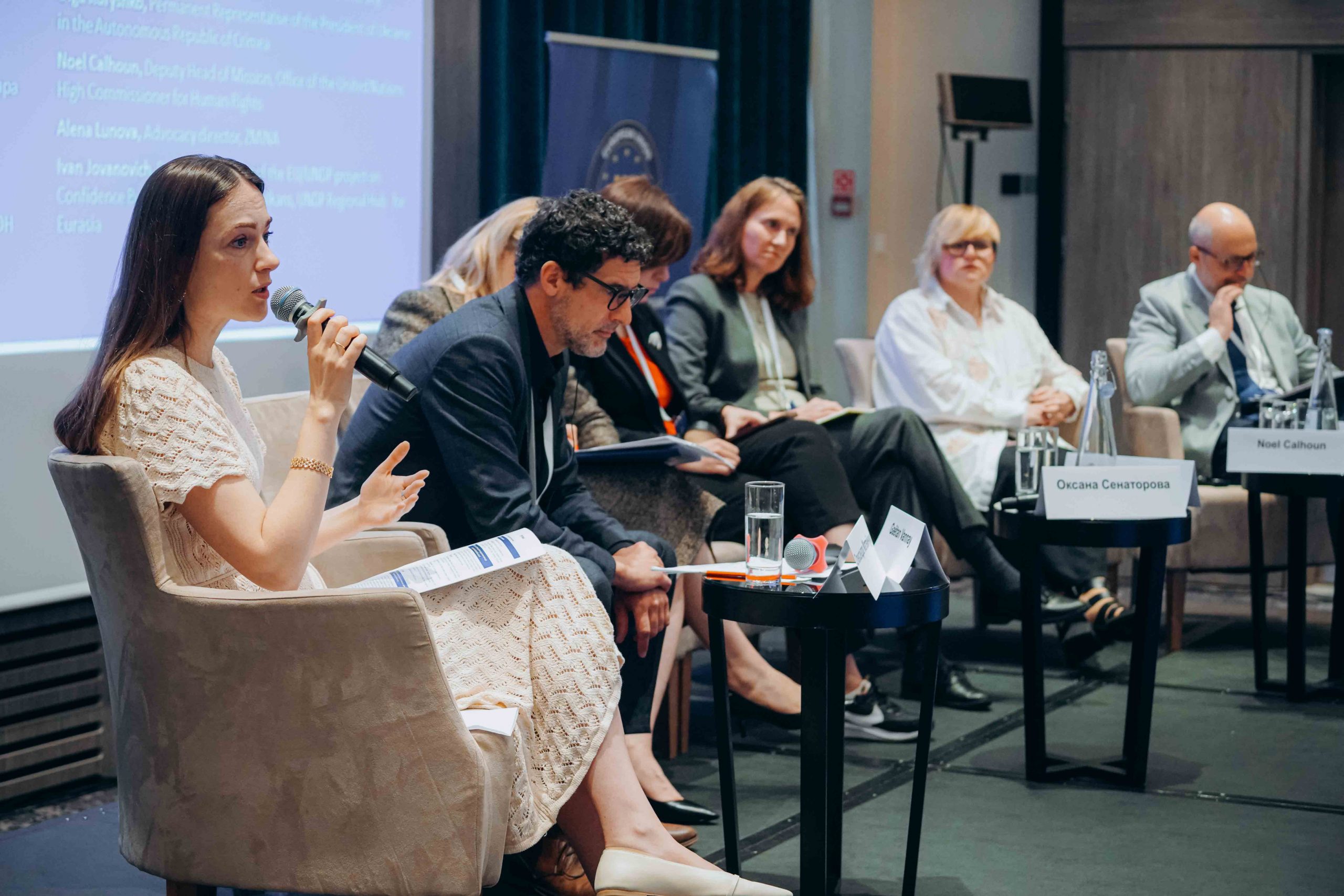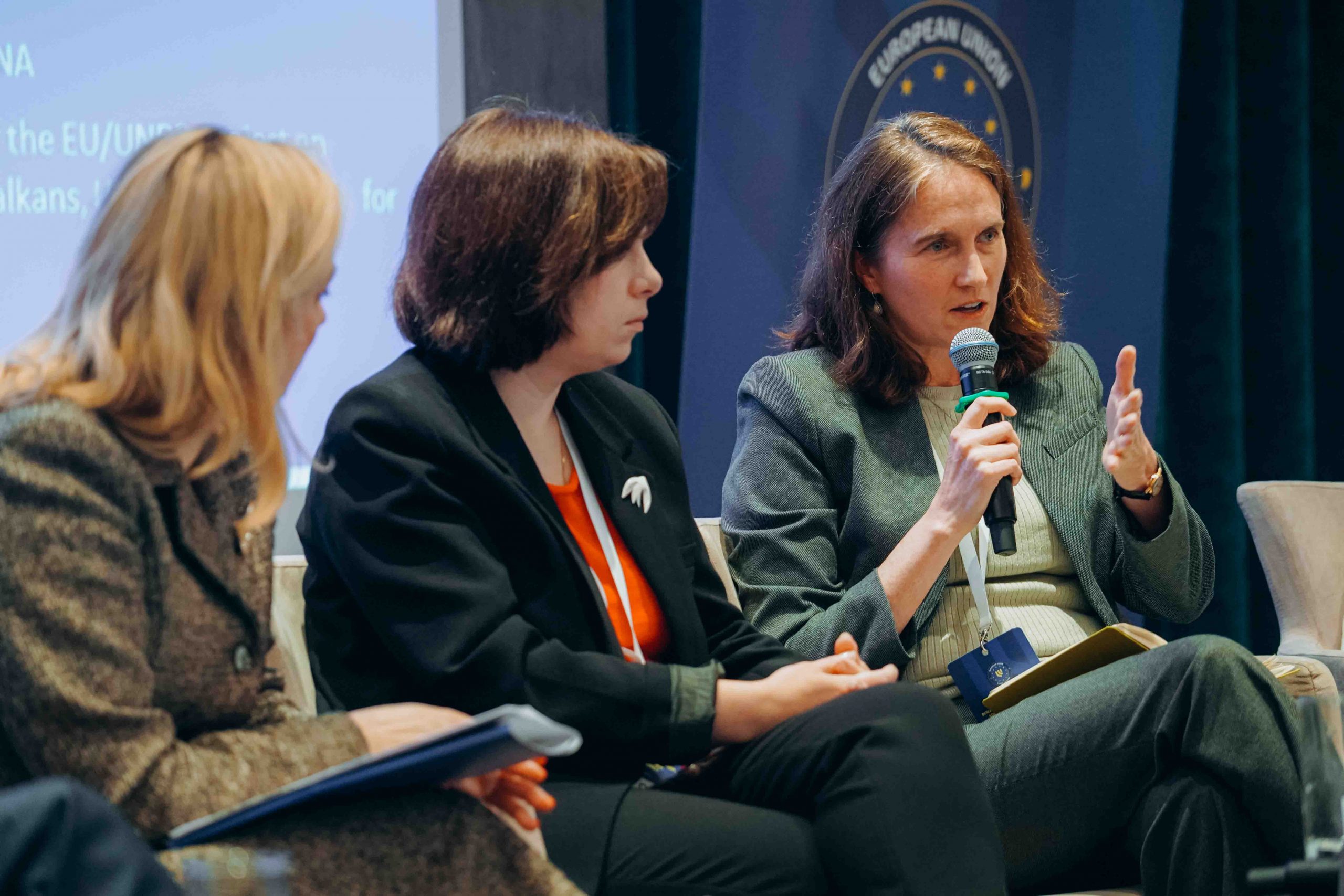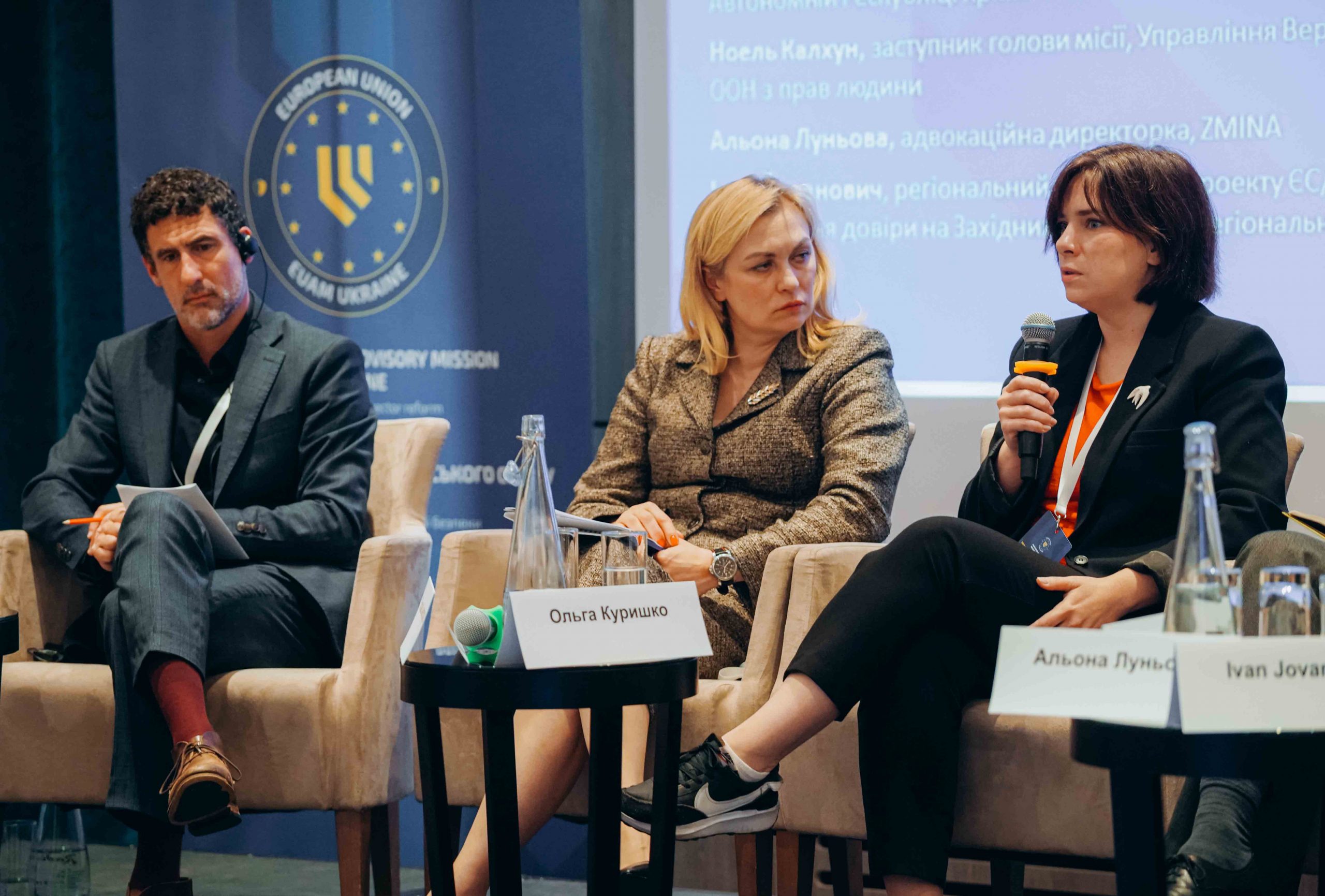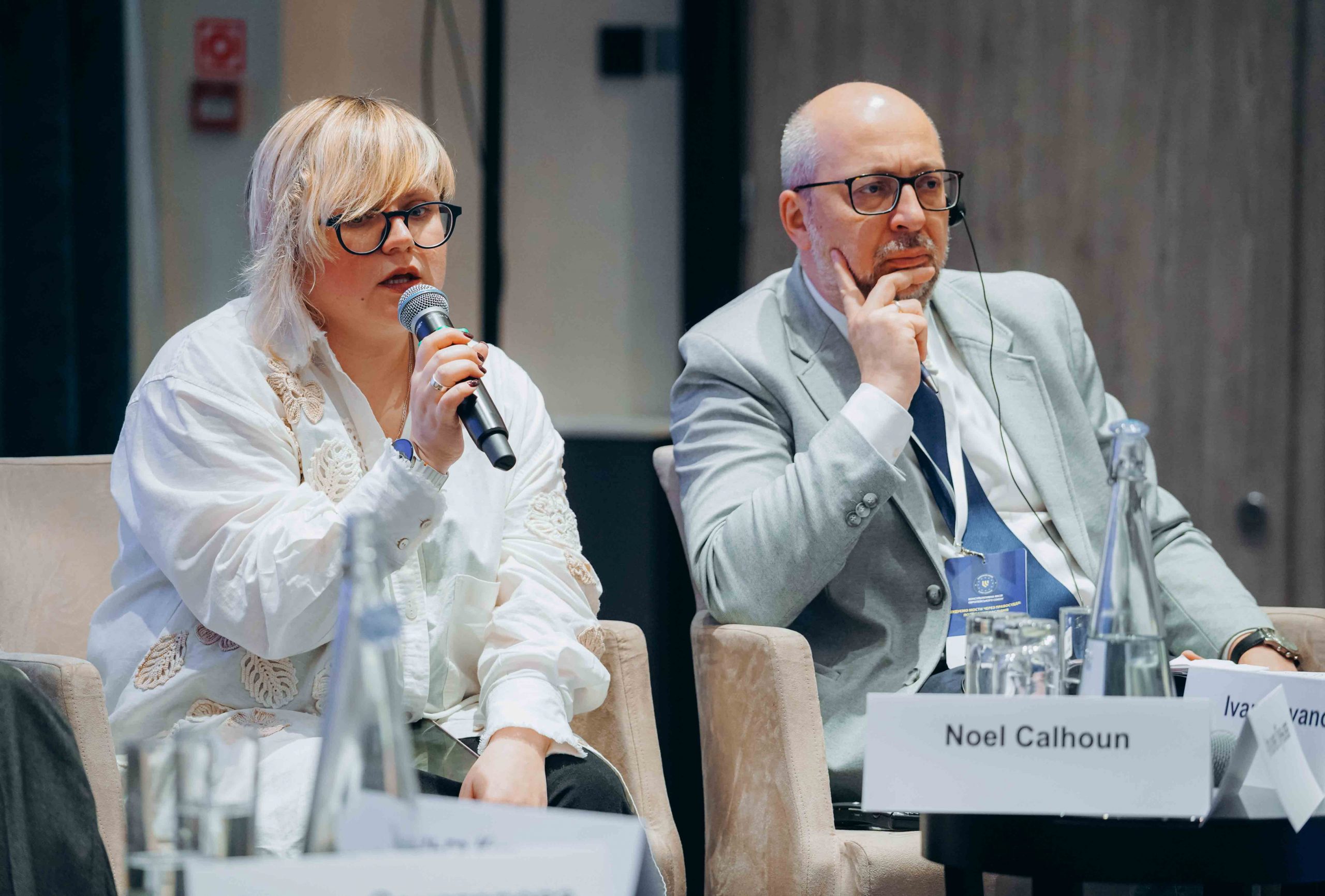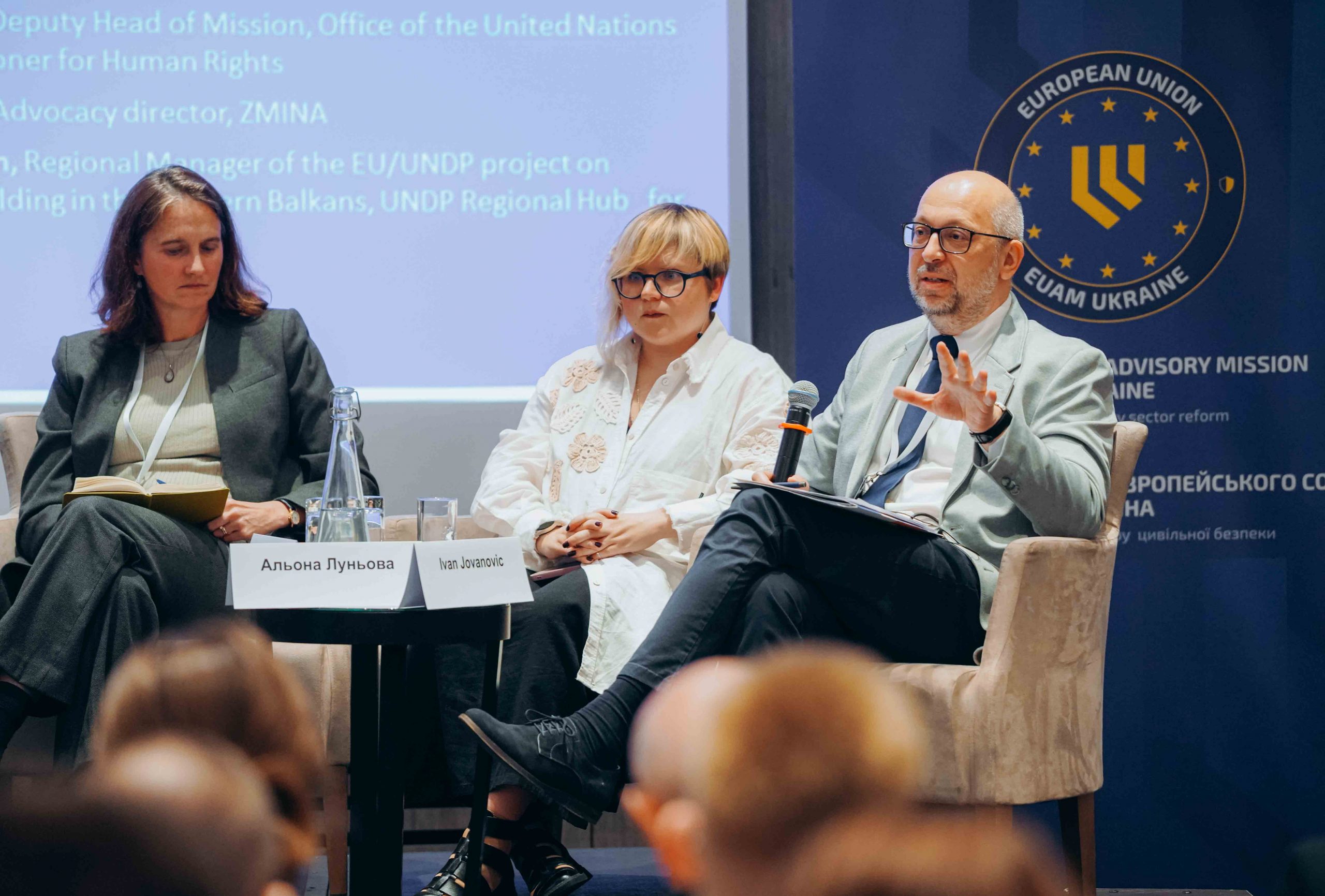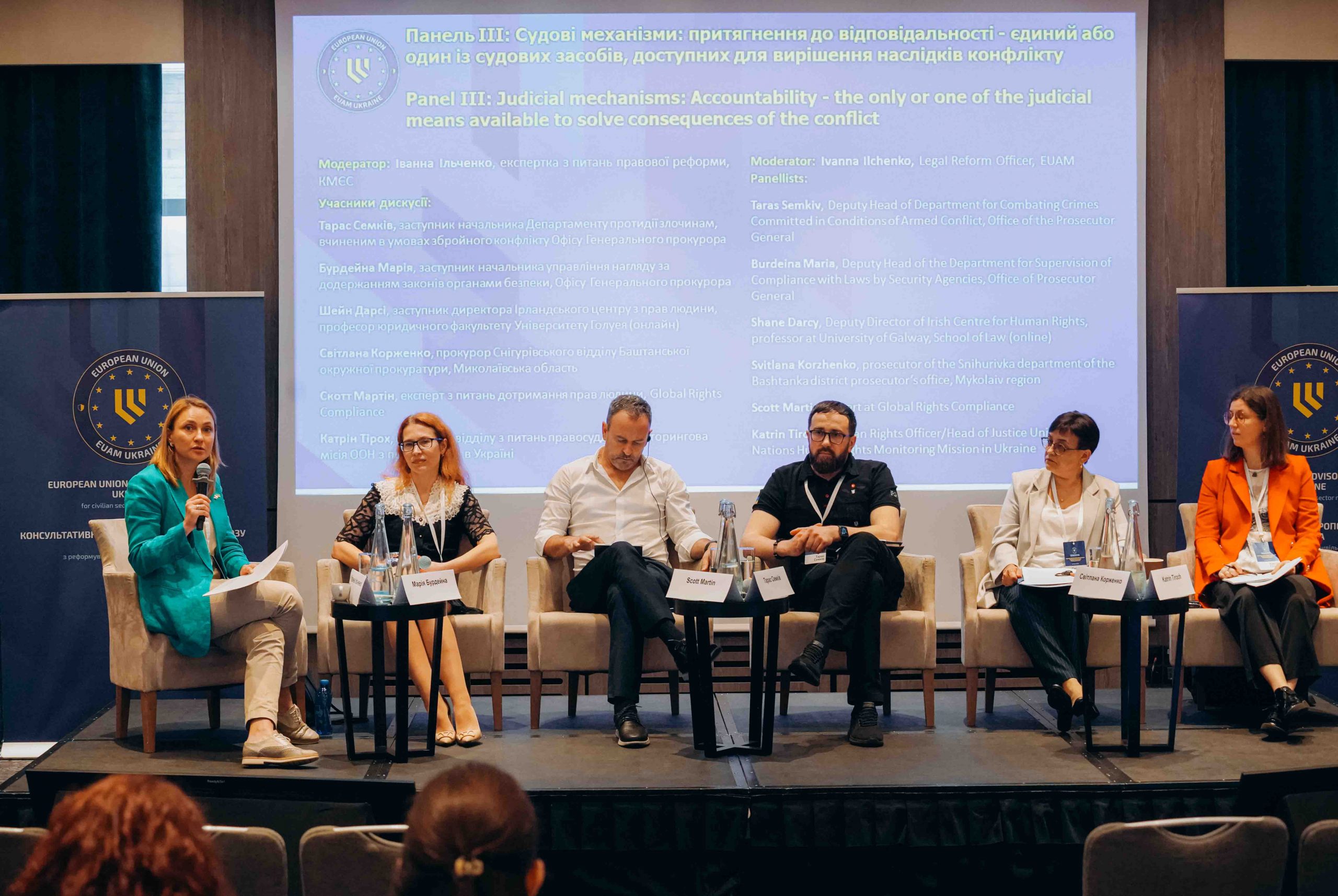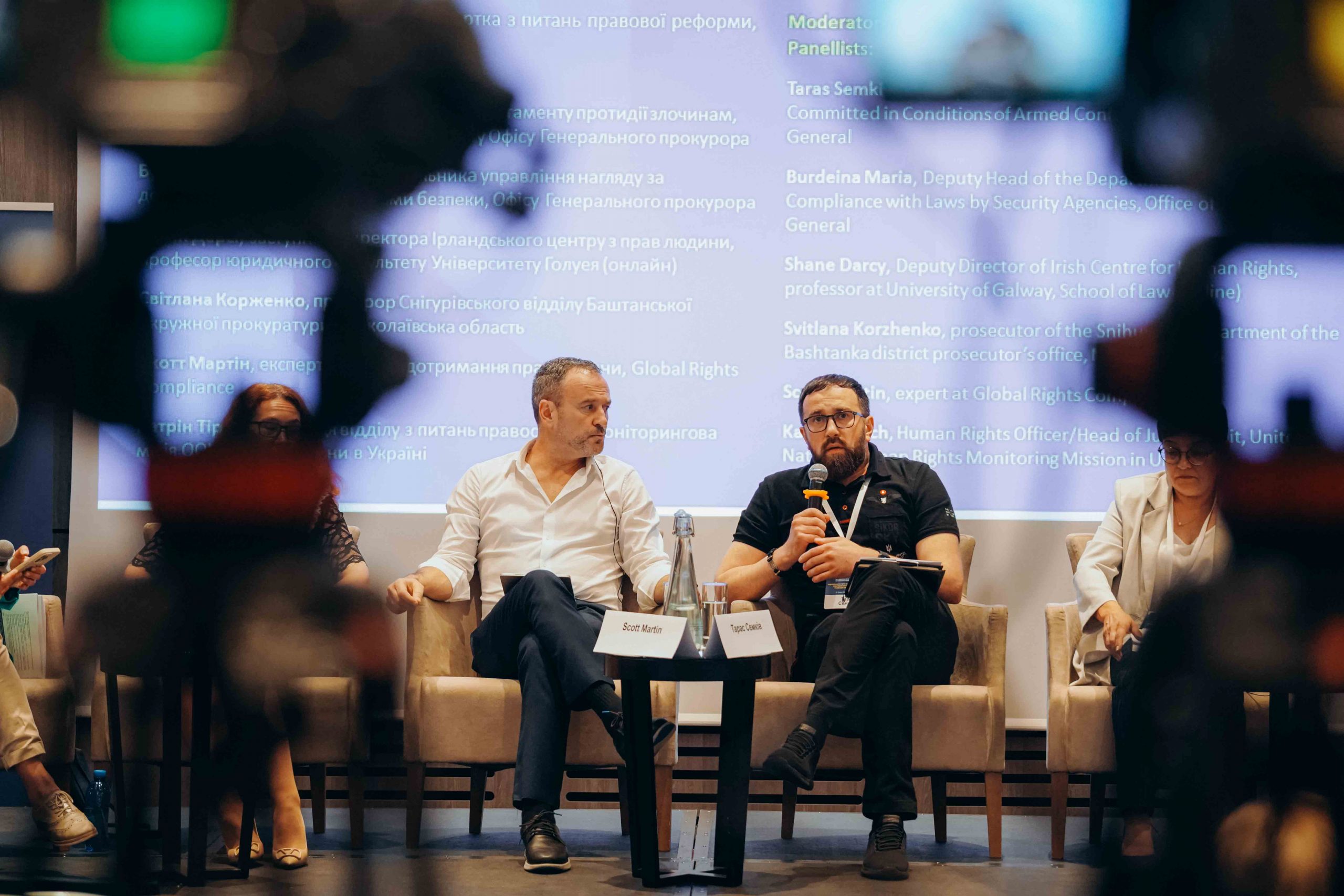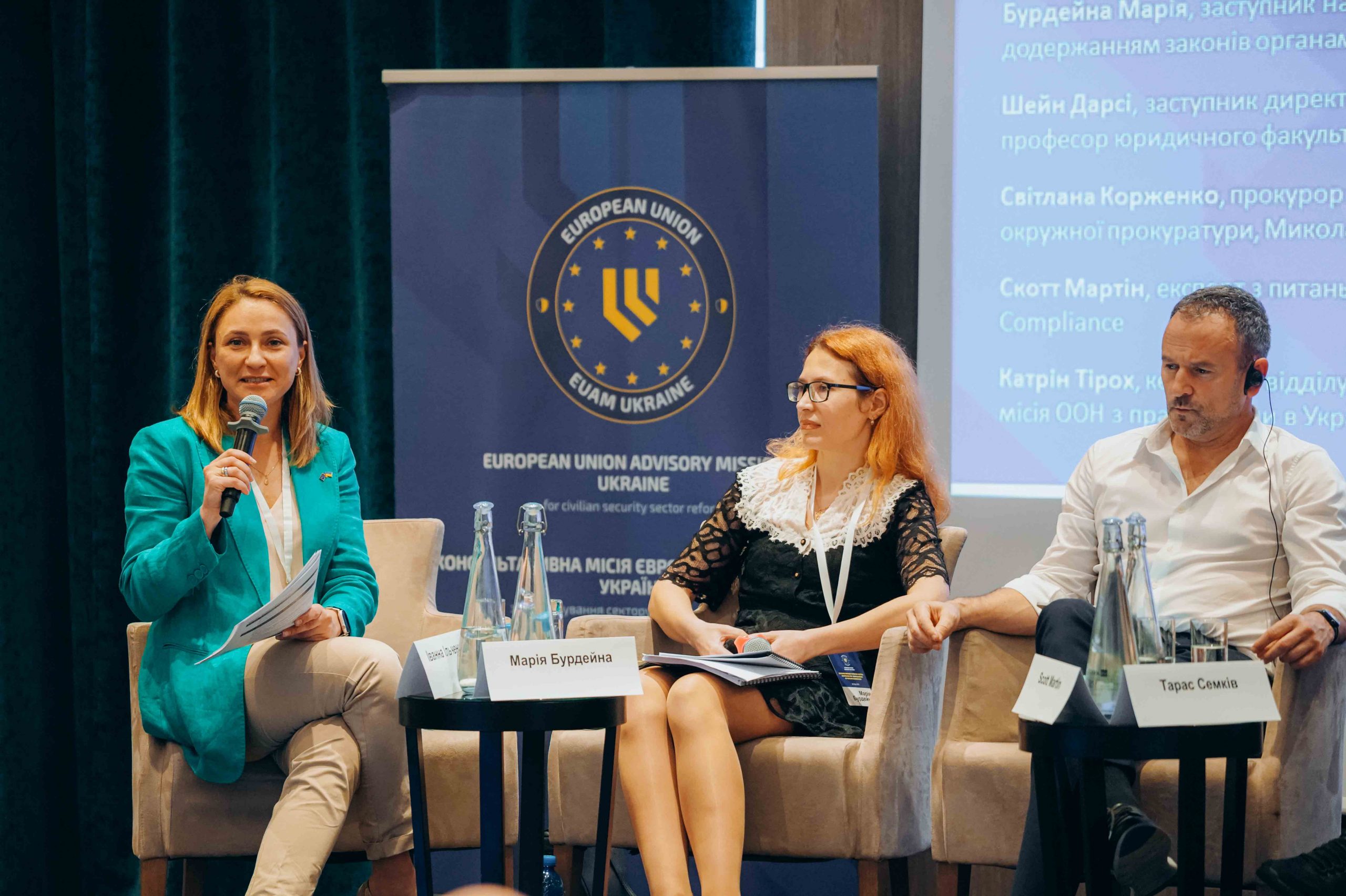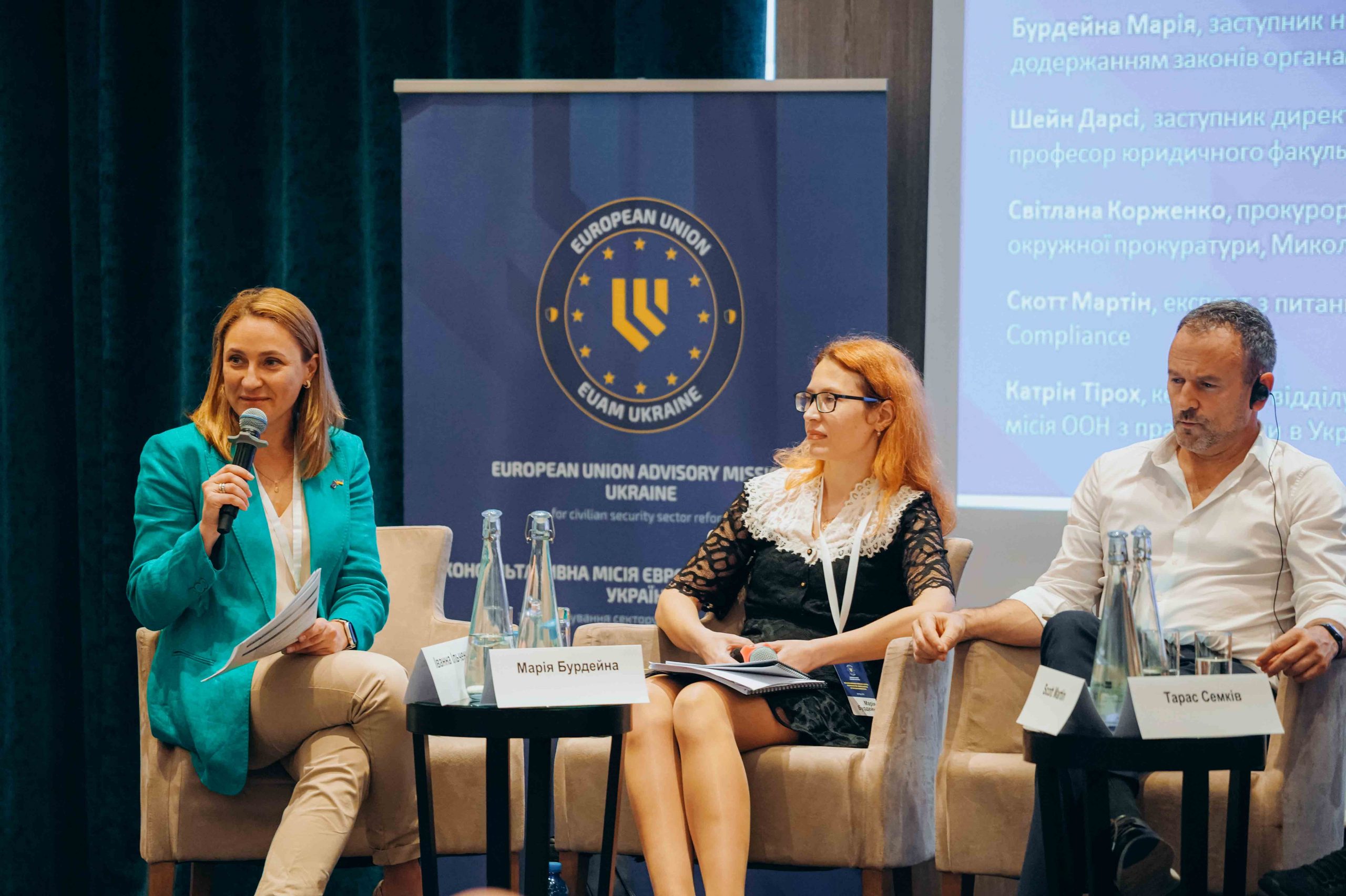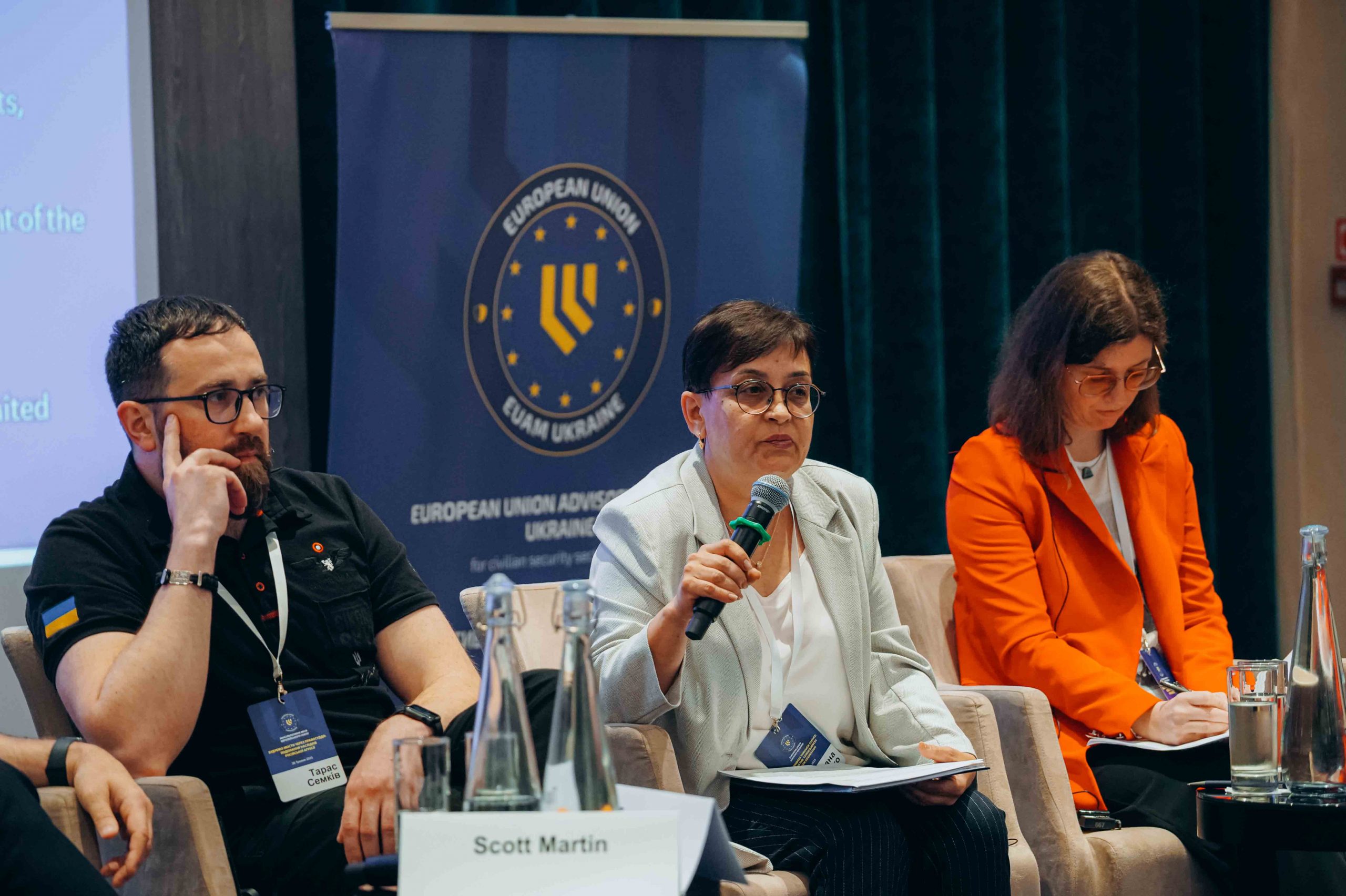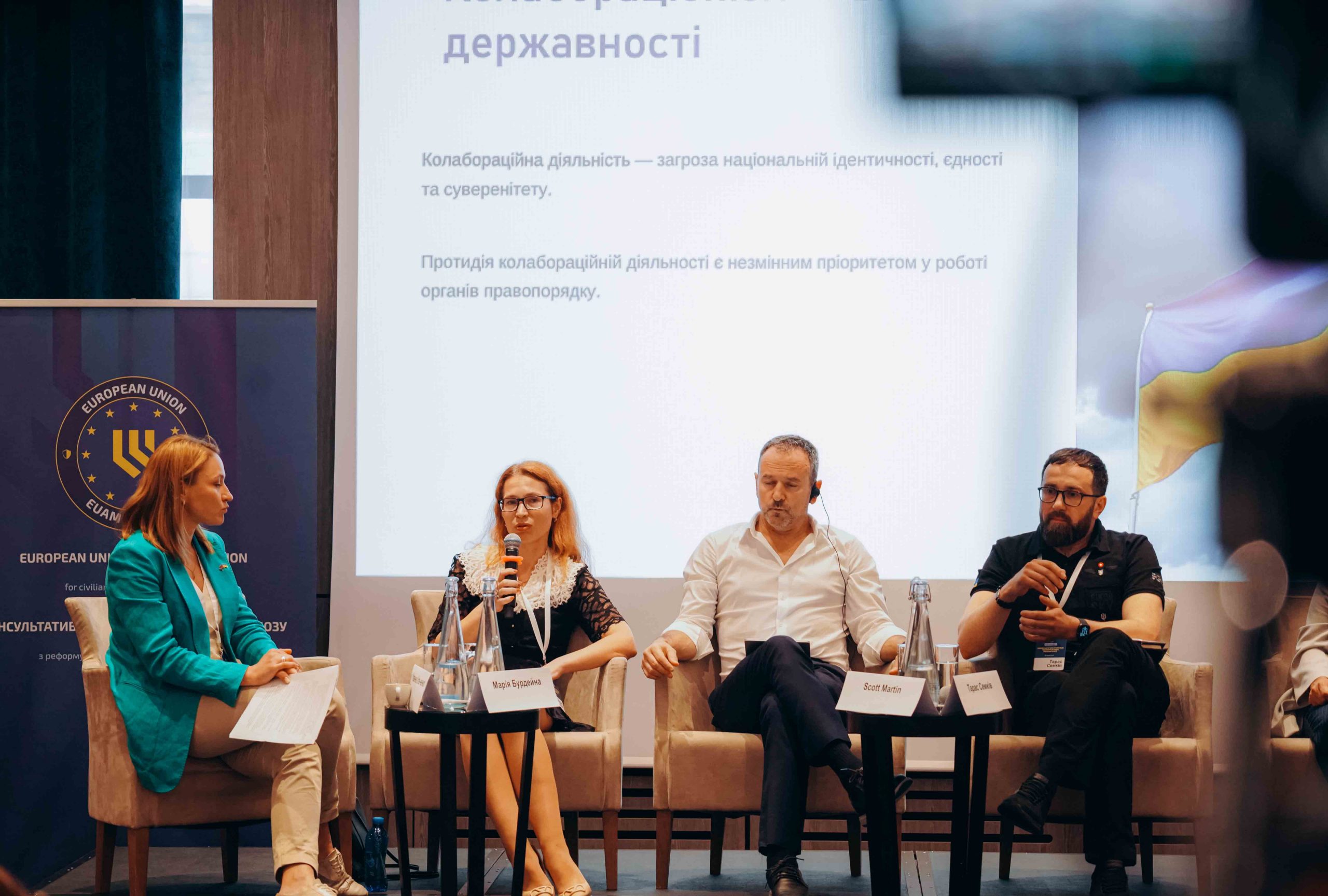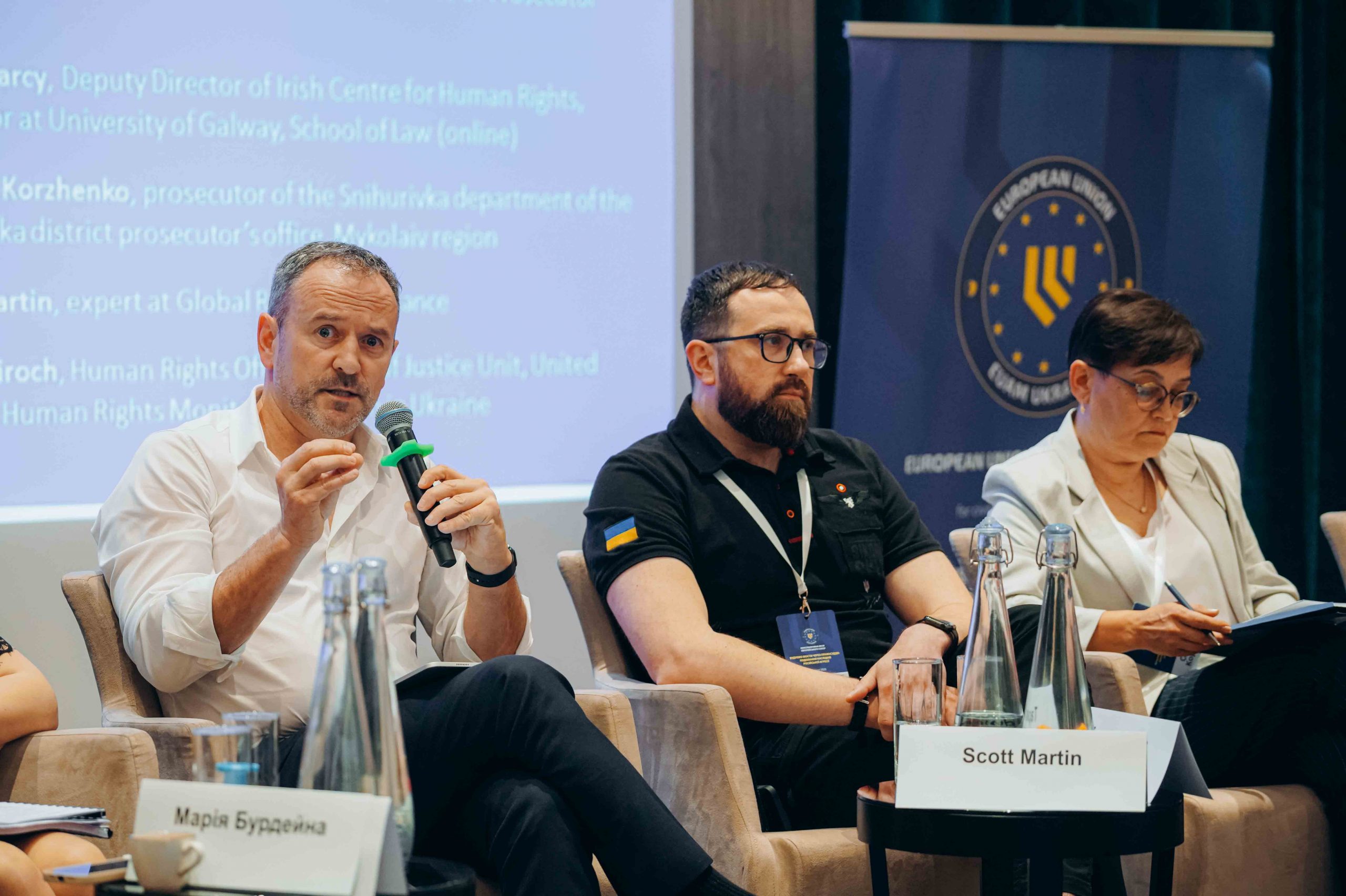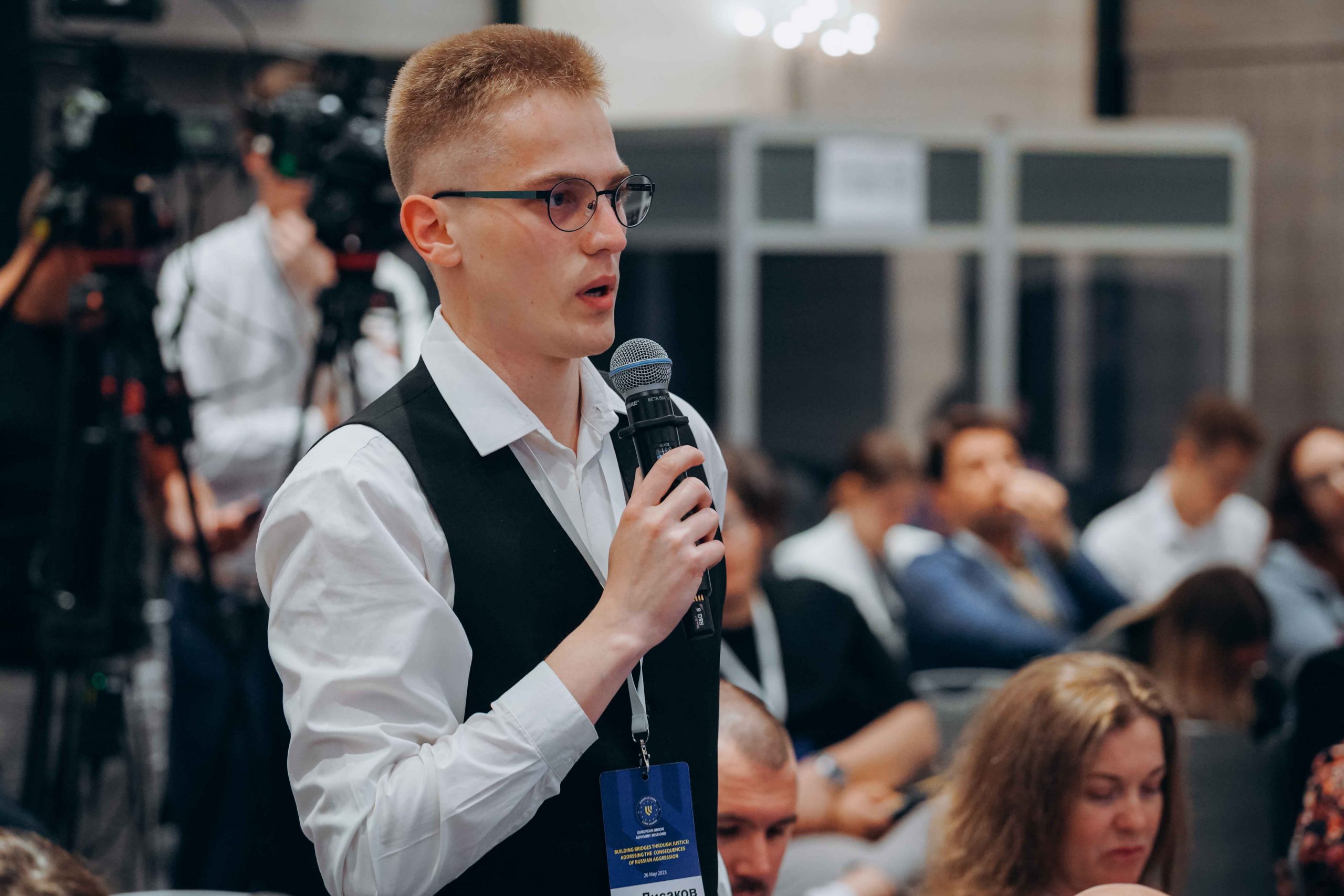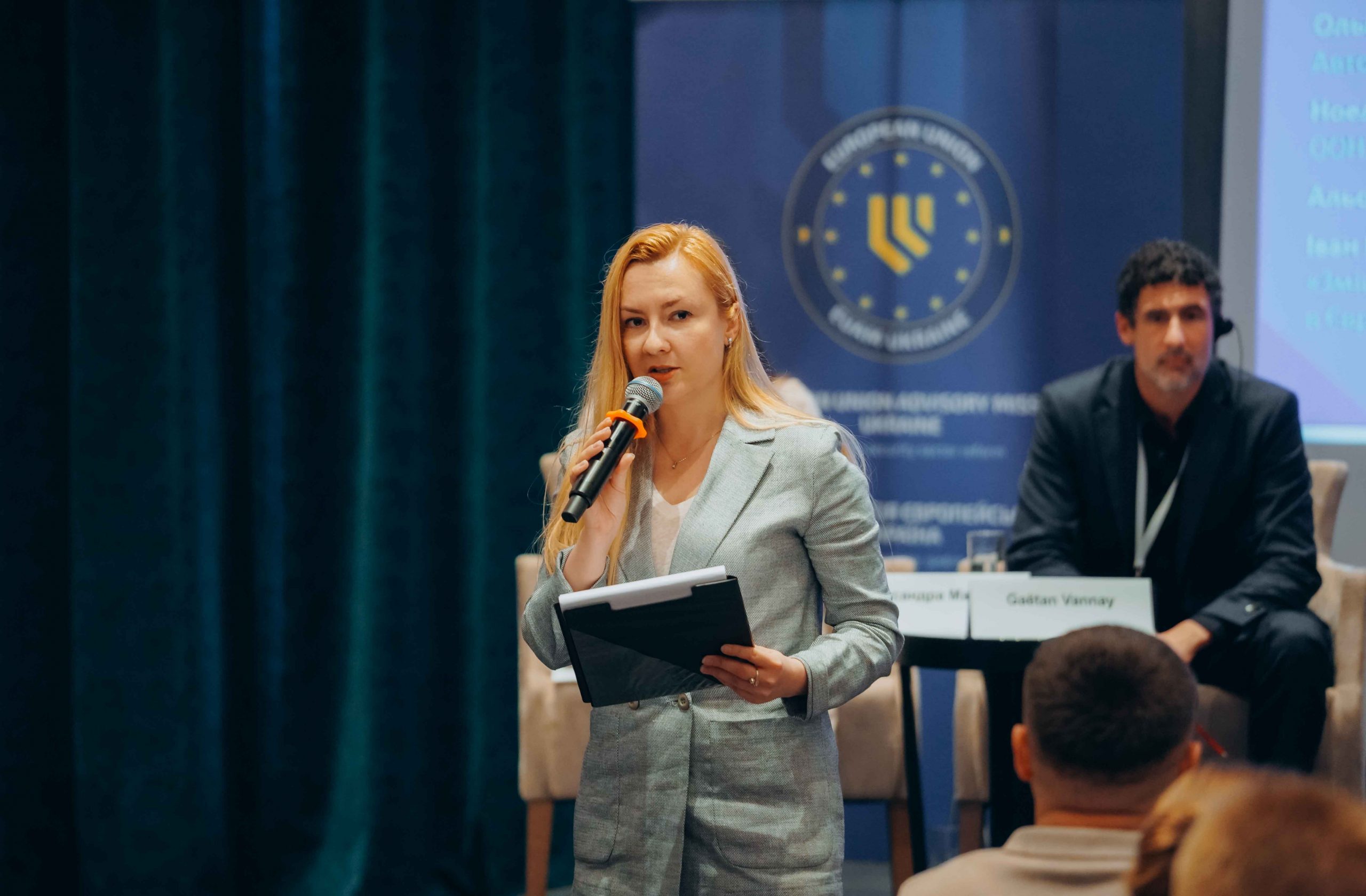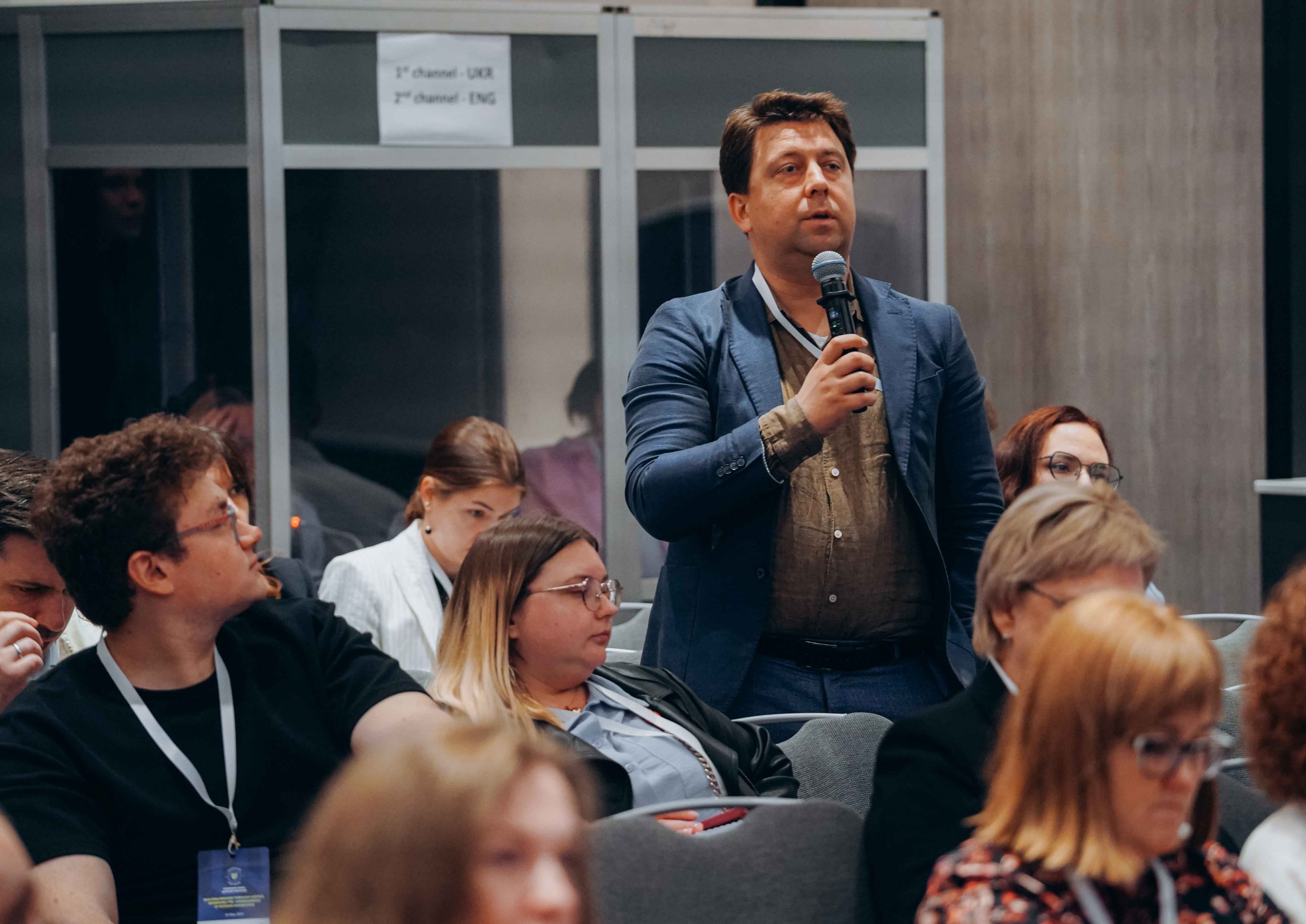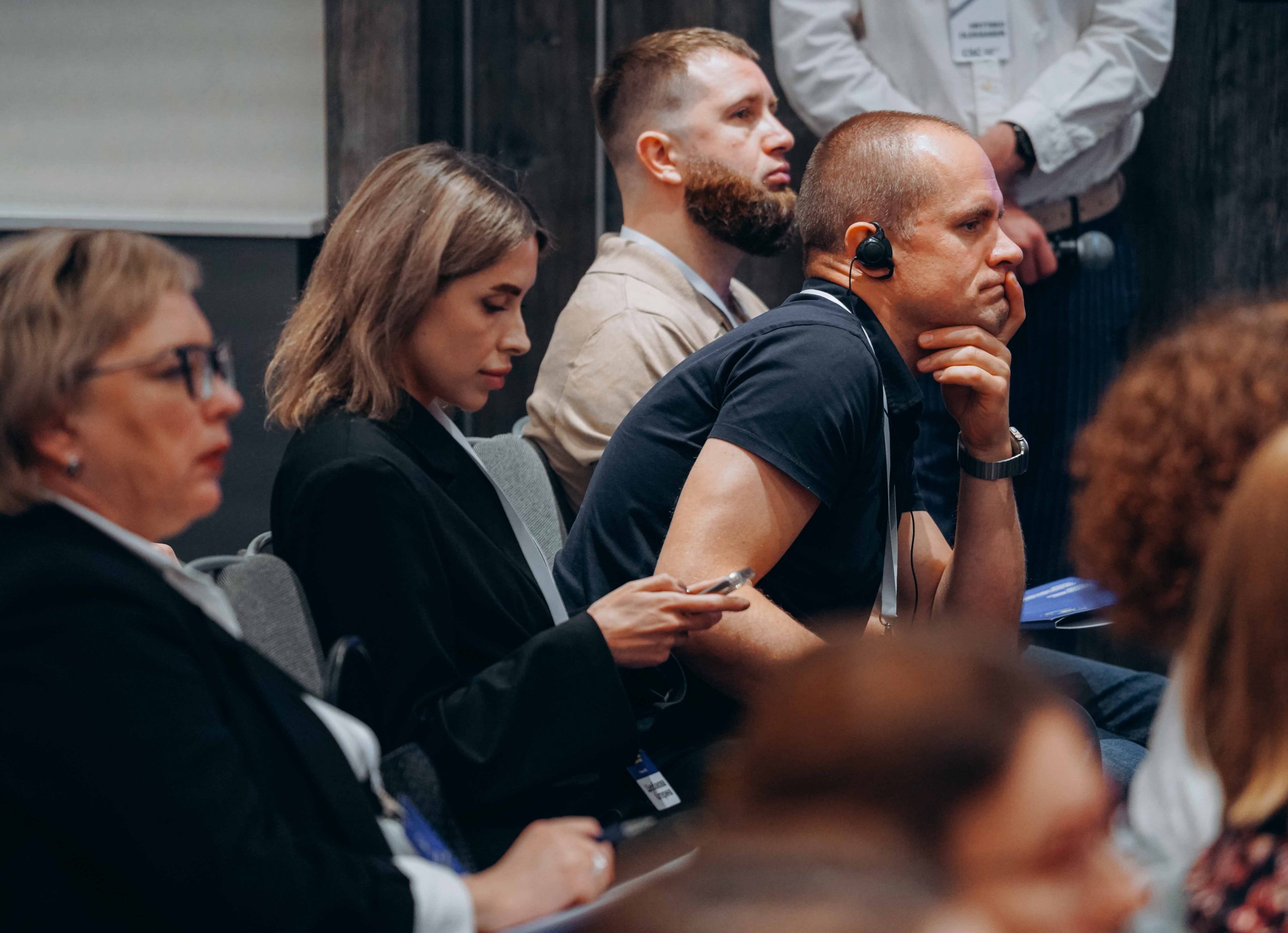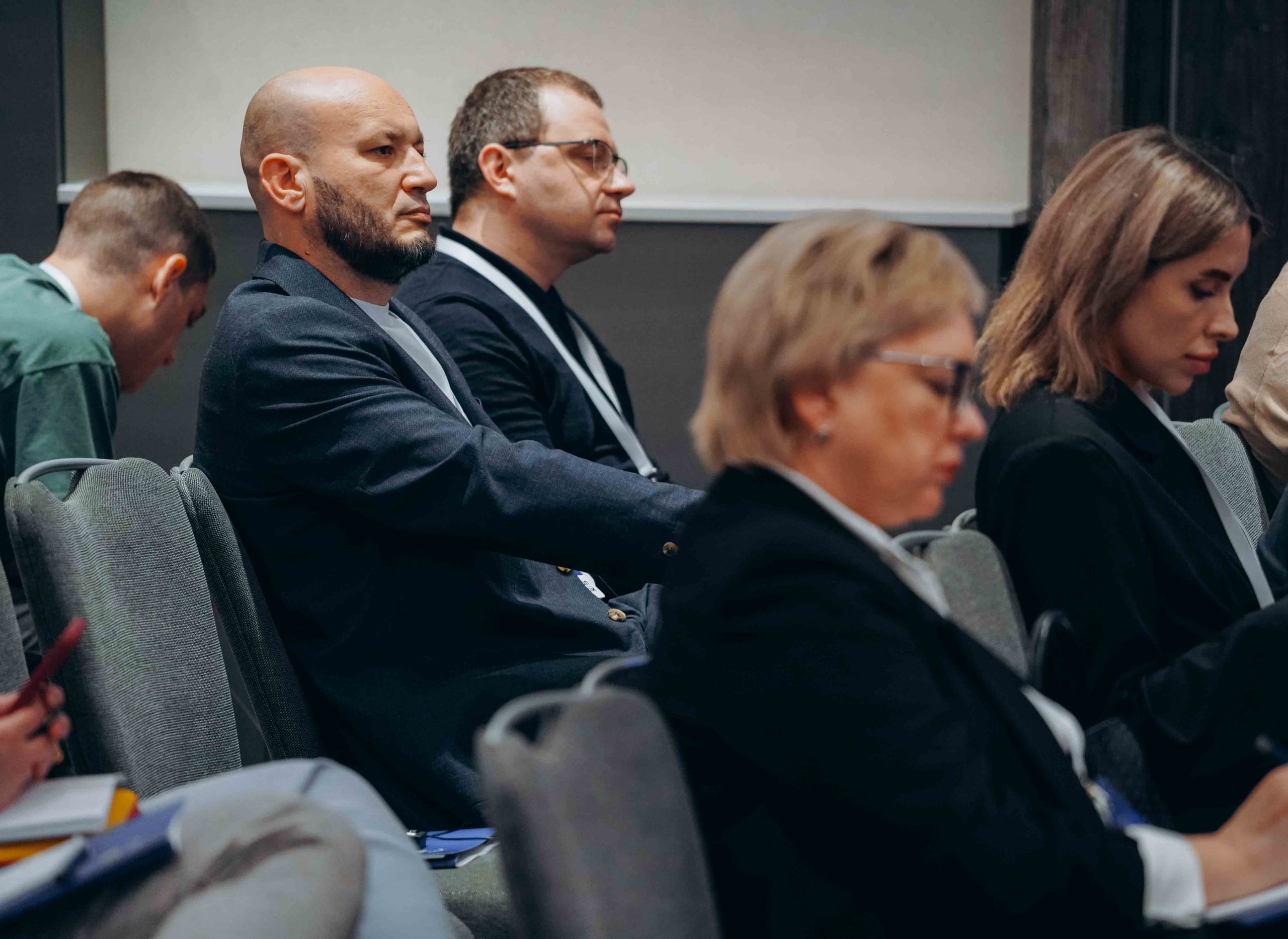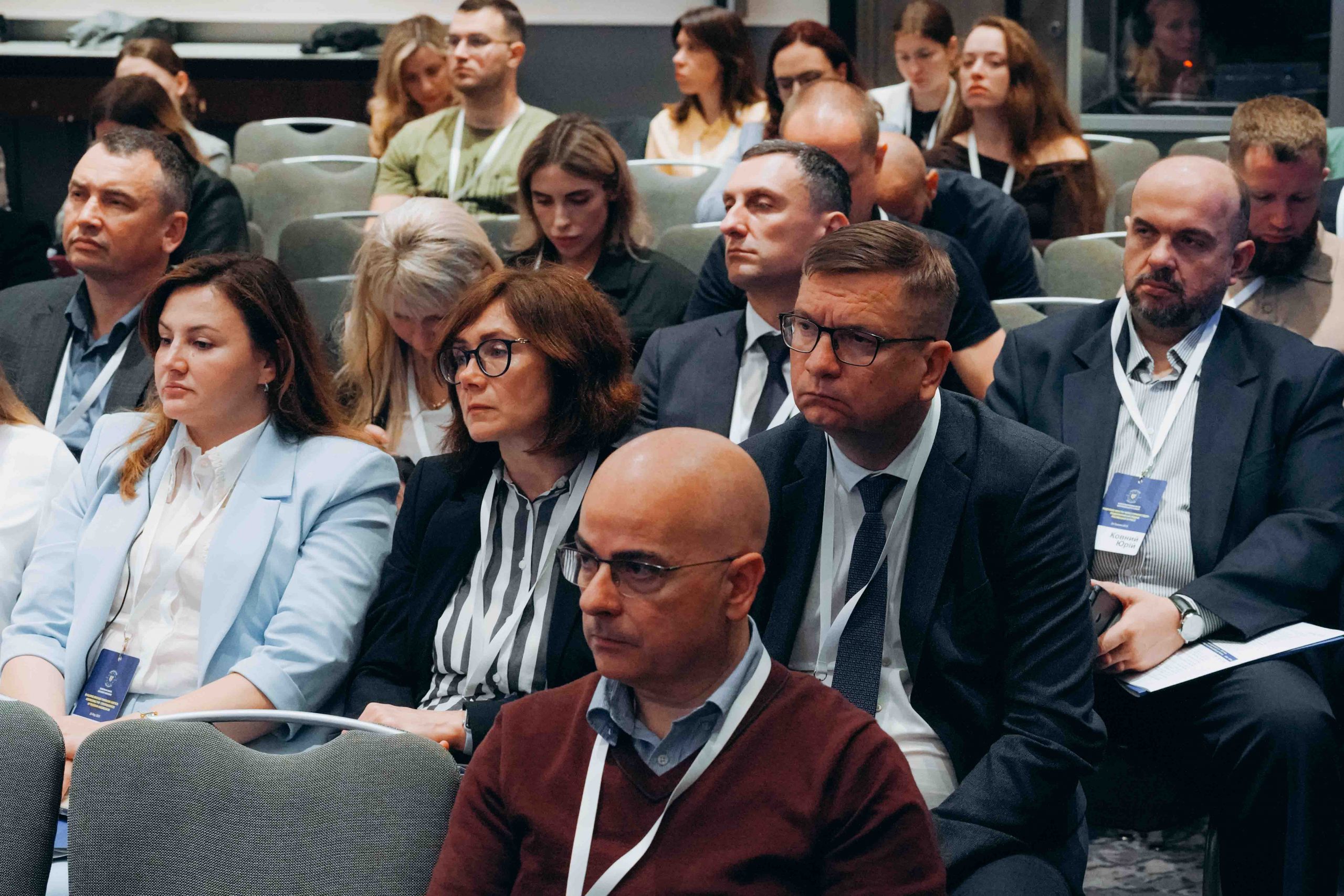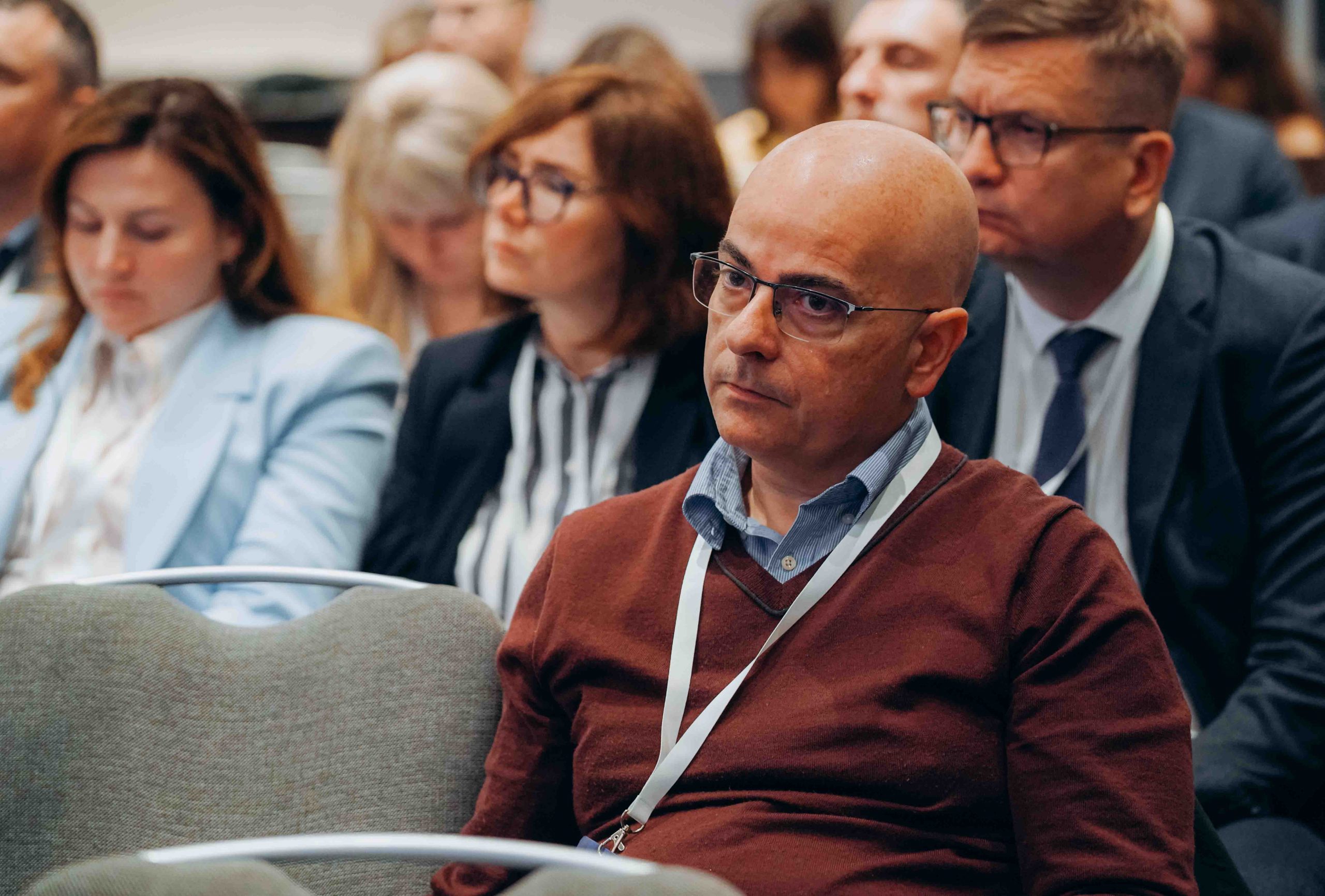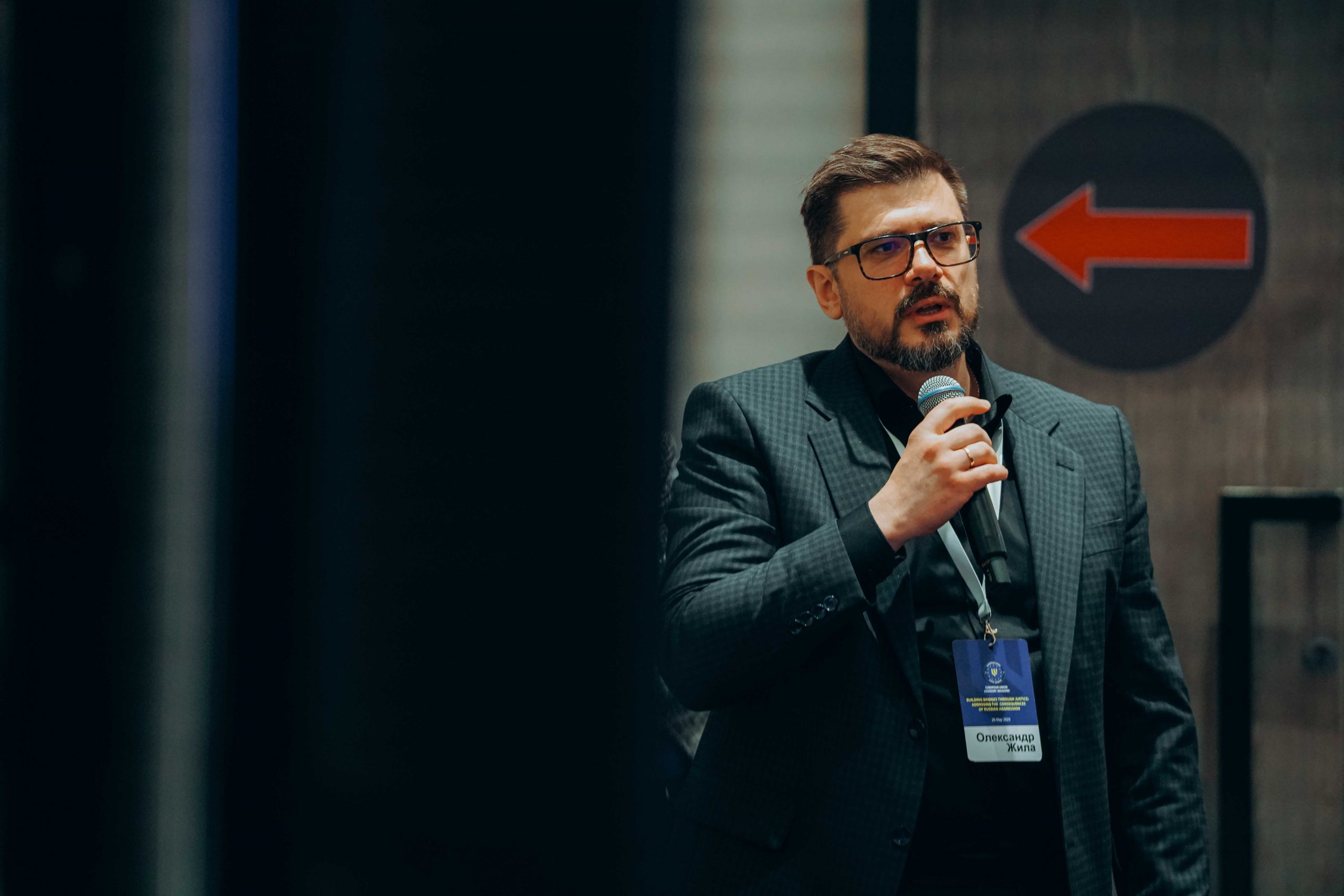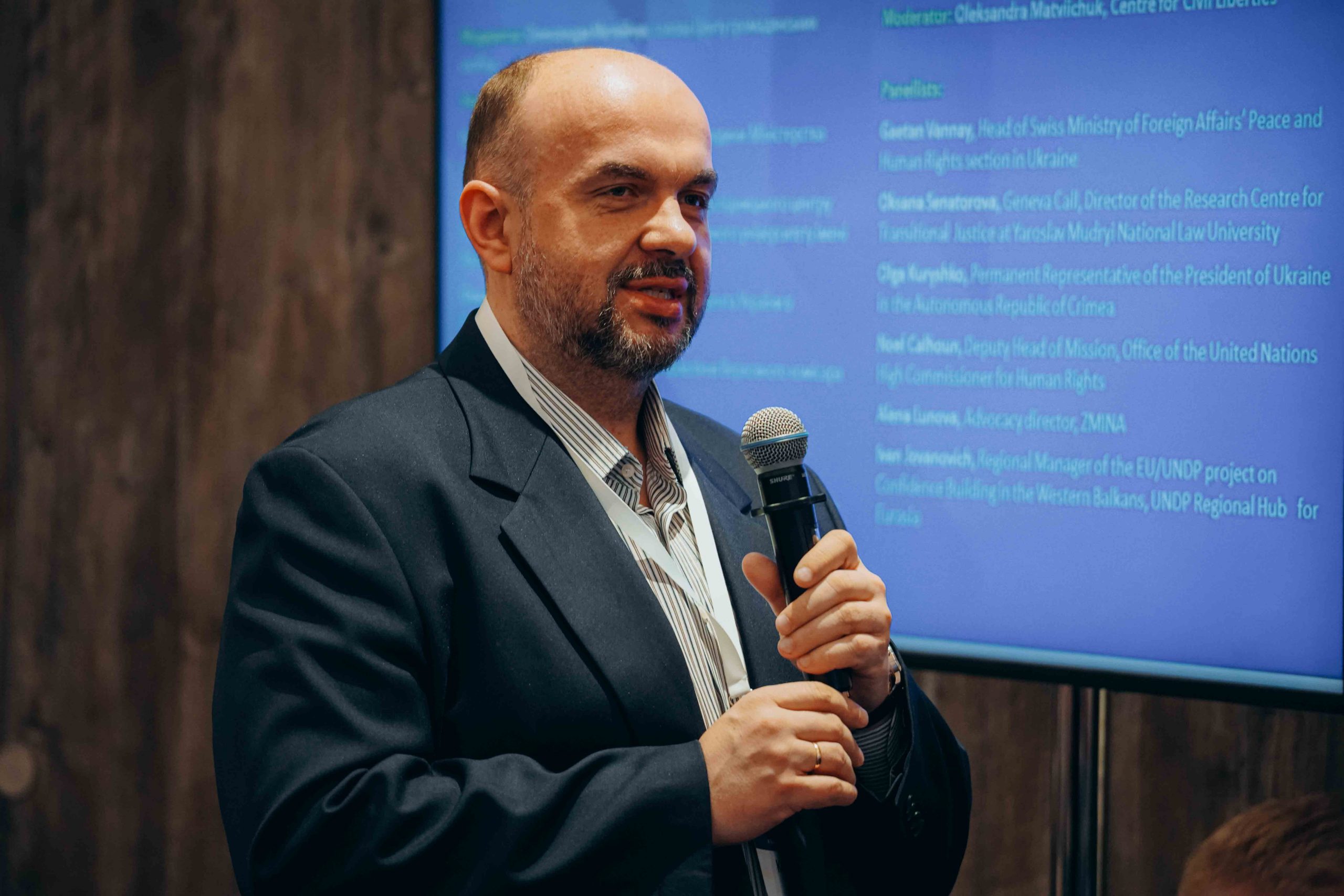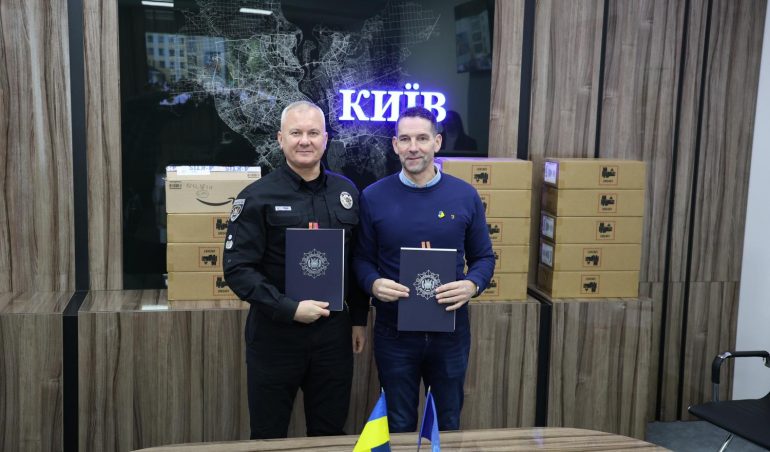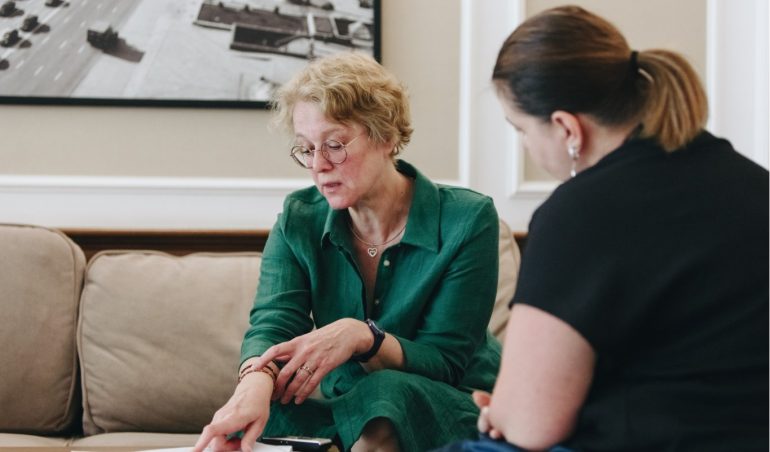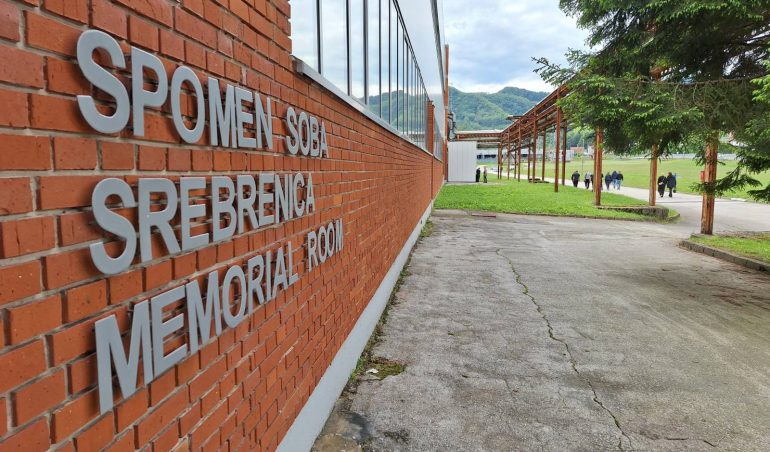Ukraine Looks for Tools to Support Recovery Amid War
May 28, 2025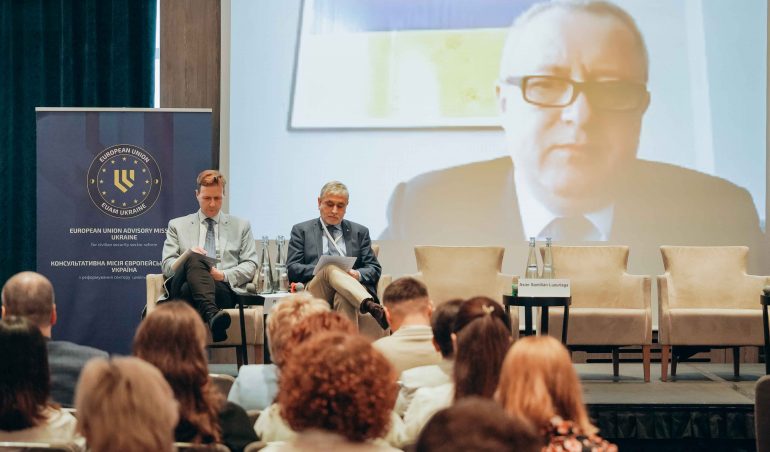
Can justice help rebuild a country while war is still raging? Ukrainian officials and international experts believe it can — if it is done right.
This was the focus of a high-level conference in Kyiv on 26 May, titled “Building Bridges through Justice: Addressing the Consequences of Russian Aggression”. Organised by the European Union Advisory Mission (EUAM) Ukraine, the event brought together government representatives, prosecutors, judges, human rights advocates, local authorities, Ombudsman representatives, civil society organizations, and academics to discuss how justice can serve not only to punish, but to heal.
The scale of the challenge is vast. Ukraine’s prosecutors have already registered almost 170,000 cases of war crimes and related offences since Russia launched its full-scale invasion. The country’s justice system is under enormous pressure — and the war is far from over.
But as EUAM’s Head of Mission Rolf Holmboe told the audience, courts and prosecutors cannot carry the entire weight of delivering justice. “Justice should serve as a vehicle for healing, fostering social cohesion, building national unity and facilitating re-integration of liberated territories,” said Holmboe, who opened the conference alongside Andriy Kostin, Ambassador of Ukraine to the Netherlands, and Asier Santillán Luzuriaga, Head of Section for European Integration, Governance and Rule of Law, Civil Society at the EU Delegation to Ukraine. That requires a wider approach — combining judicial and non-judicial mechanisms that are inclusive, survivor-centred, and adapted to Ukraine’s current realities.
Beyond the courtroom
The conference tackled these issues across four thematic discussions, each exploring a different angle of Ukraine’s justice response.
The first session focused on urgent challenges: how to ensure accountability for the crime of aggression, deal with collaborators, needs of victims and reparations, cognitive de-occupation, vetting, and needs of internally displaced persons. It also explored how to rebuild social cohesion in liberated or frontline regions affected by occupation and violence, and the process of identifying the harm suffered. Speakers included Tamila Tasheva (Verkhovna Rada of Ukraine), Anton Korynevych (Ministry of Foreign Affairs), Olga Altunina (Parliament Commissioner for Human Rights), Ivan Kuhta (Head of Snihurivka local military administration, Mykolaiv region), Asa Solway (UPRIGHTS), and Oleksiy Ryabykin (Ministry for the Development of Communities and Territories).
The second panel examined tools already in use — and those still needed — to address the aftermath of mass atrocities. These include prosecutions, reparations, truth commissions, institutional reform, addressing the consequences of occupation, and the violation of the rights of people under occupation. Speakers emphasised that Ukraine’s approach must be victim-oriented and developed through national ownership while learning lessons from other countries, the importance of communication and managing expectations of victims and the public. Comparative insights were shared from Croatia and Bosnia and Herzegovina. The panel featured Gaetan Vannay (Swiss Ministry of Foreign Affairs), Oksana Senatorova (Yaroslav Mudryi National Law University), Olga Kuryshko (Permanent Representative of the President of Ukraine in the Autonomous Republic of Crimea), Noel Calhoun (Office of the UN High Commissioner for Human Rights), Alena Lunova (ZMINA), and Ivan Jovanovich (UNDP Regional Hub for Eurasia).
The third session returned to judicial tools and criminal accountability, addressing questions such as how to manage overwhelming caseloads of international crimes, challenges of trials in absentia, prosecution of collaboration in the context of international humanitarian law, ethical dilemmas in exchanges of prisoners of war. These discussions also explored how legal processes could affect national unity. Speakers included Taras Semkiv and Maria Burdeina (Office of the Prosecutor General), Shane Darcy (Irish Centre for Human Rights), Svitlana Korzhenko (Bashtanka District Prosecutor’s Office), Scott Martin (Global Rights Compliance), and Katrin Tiroch (UN Human Rights Monitoring Mission in Ukraine).
The final panel focused on restorative and non-judicial measures, such as compensation and support to victims, documentation, truth-telling, lustration, and memorialisation. These approaches, panellists argued, are essential for recognising survivors and promoting long-term healing. The discussion brought together Veronika Plotnikova (Coordination Center for the Support of Victims and Witnesses at OPG), Fionnuala Ní Aoláin (University of Minnesota), Kateryna Busol (Kyiv-Mohyla Academy), Tamara Dovgopoliuk (Ministry of Justice), Igor Karaman (Register of Damage Caused by the Aggression of the Russian Federation against Ukraine), and Anton Drobovych (Kyiv School of Economics).
Towards a Ukrainian model
Justice must be seen to serve the people. That means building processes that are transparent, gender-sensitive, inclusive, and based on the real needs of those affected — especially survivors, children, and displaced persons. While international guidelines and frameworks, as well as lessons from other countries, are informative, Ukraine must come up with its own model tailored to Ukraine’s specific context.
“Through the combined efforts of state institutions, international partners, and the expert community, we have a unique chance to build an effective support system unlike anything that currently exists in the world,” said Andriy Kostin, Ambassador of Ukraine to the Netherlands.
The conference didn’t aim to offer all the answers. However, it did succeed in launching a structured, inclusive dialogue on justice, addressing the consequences of Russian aggression in Ukraine. Its value will ultimately depend on how the ideas discussed will lead to the formulation of a national policy on justice that meets the needs of a society still under attack but determined to build a just and resilient future.


